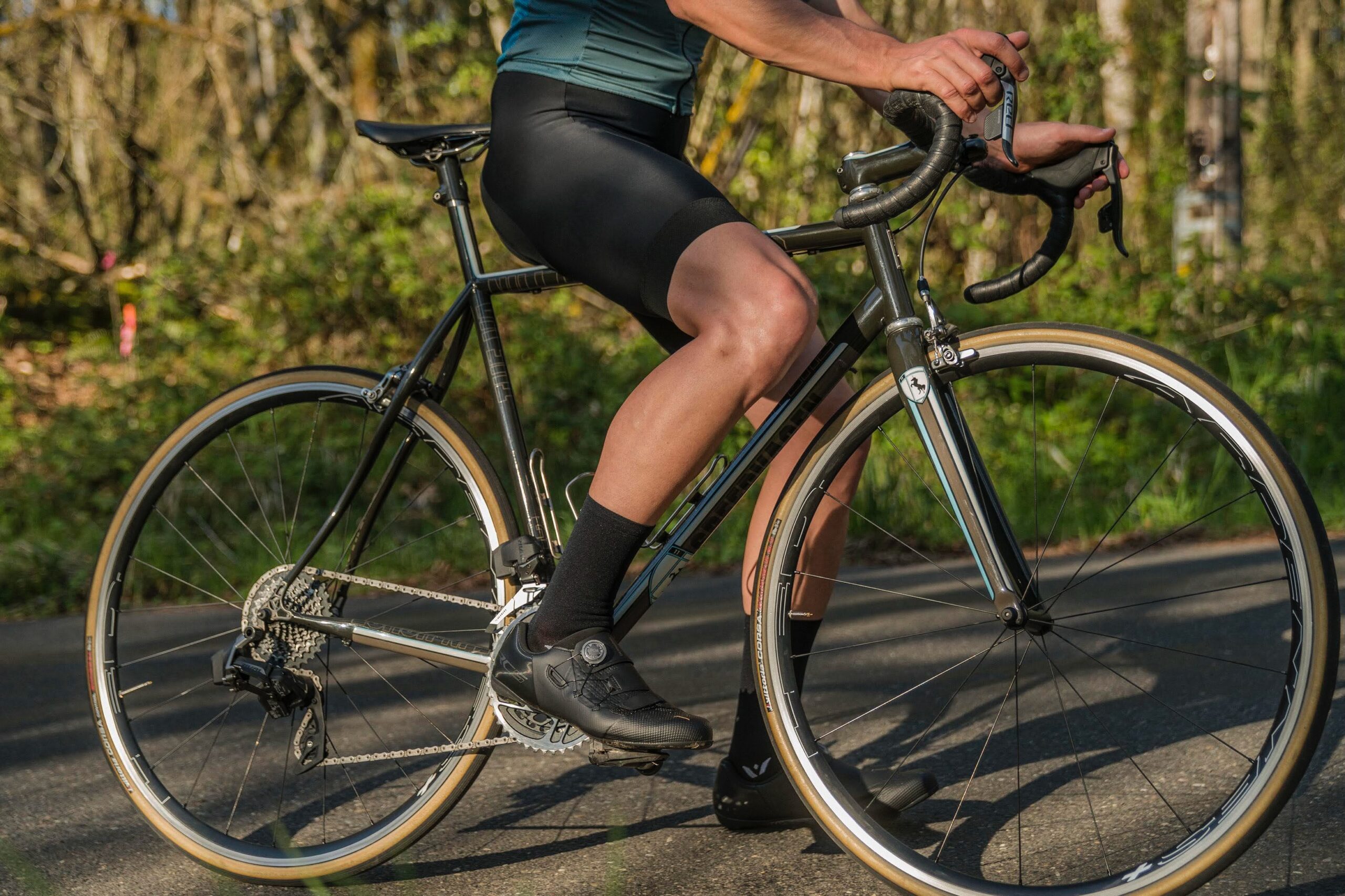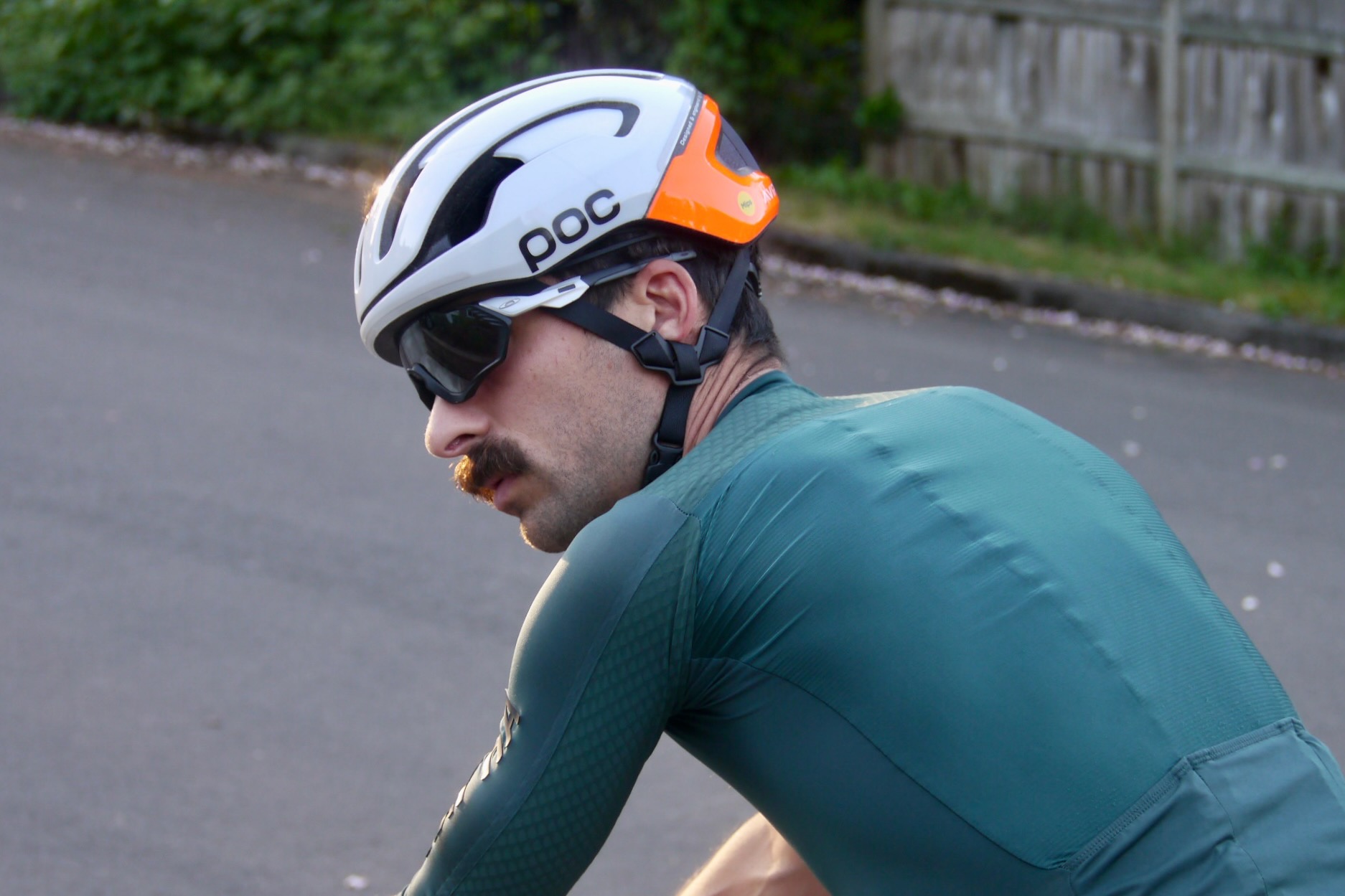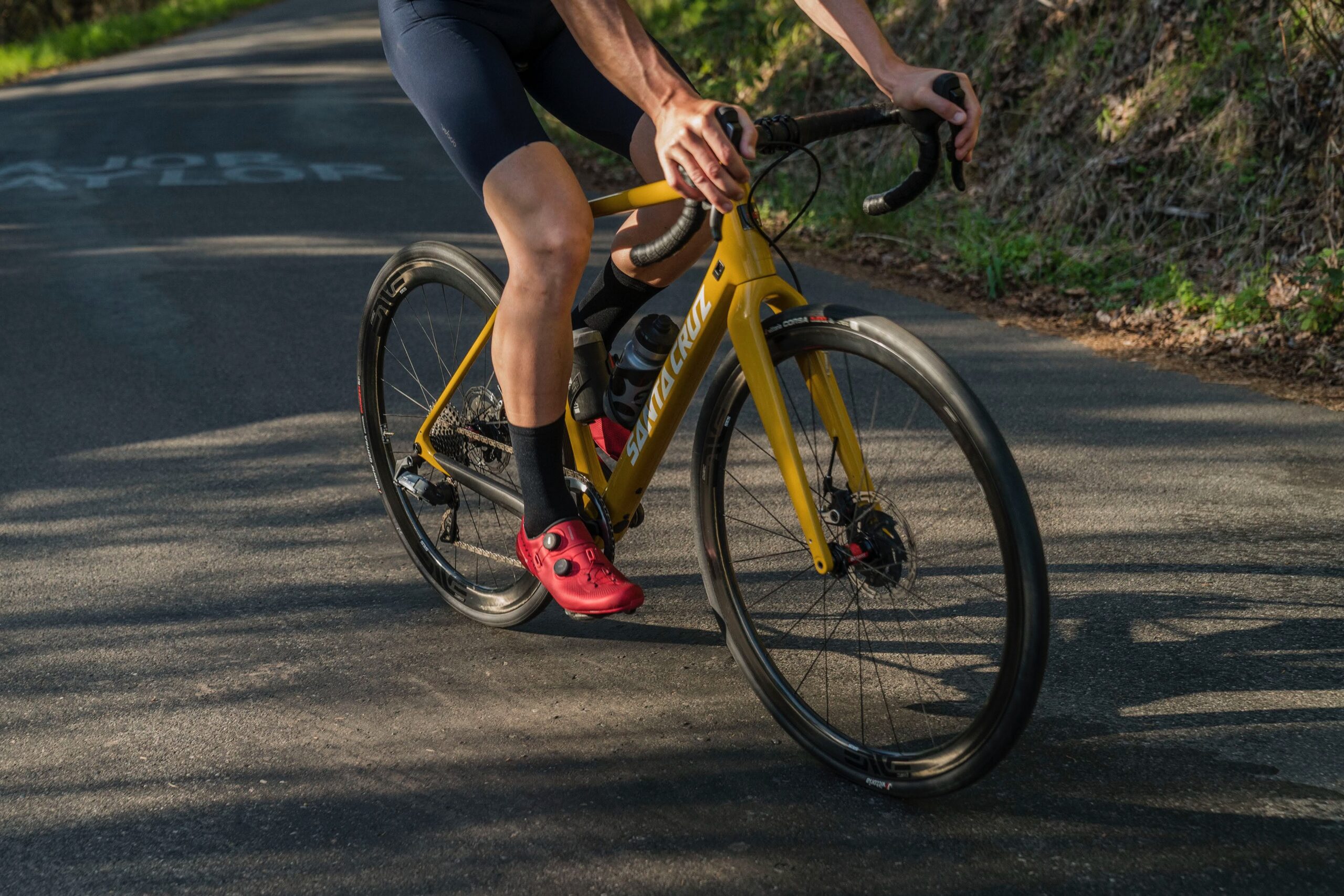Bib shorts are the workhorse of your cycling kit and the foundation of your comfort during long hours in the saddle. Finding the right pair of cycling bib shorts can make the difference between an enjoyable ride or a literal pain in the behind.
In contrast to regular padded shorts, bib shorts have straps that connect over your shoulders and back to the top of your shorts. This connection increases comfort and efficiency by keeping the seat pad, or chamois, stable and aligned beneath you, helping to prevent it from bunching up by migrating sideways or forward. They also provide more support, as the straps leverage your upper body’s forward posture to keep your shorts snug and better contoured to your body. The lack of a defined waistband also helps keep unwanted pressure off your abdomen, which can cause discomfort over time. As odd as they may look before being covered by your jersey, bib shorts are ubiquitous in racing for the benefits mentioned above, and once you try them, you’re unlikely to return to regular padded shorts.
Not all cycling bib shorts are created equal, however, with different materials, designs, straps, pads, and a wide range of price points to choose from. With so many brands and models on the market, finding the right pair for your needs and budget can be a daunting task. To help, we rounded up a diverse selection of 11 of the best cycling bib shorts on the market to test and compare side by side.
Over the course of months of testing, we scrutinized each pair’s fit, comfort, design, straps, seat pad (chamois), leg grippers, and style. Our top recommendations are listed below along with the best of the rest which are all worthy of consideration as well. You can check out our comparison chart to see all the models we tested at a glance. Our detailed buying advice has all the information you need to help inform your purchase, and we provide answers to common questions in our FAQ section.
The Best Cycling Bib Shorts of 2023
- Best Overall Cycling Bib Shorts: Velocio LUXE
- Best Value Cycling Bib Shorts: Pearl Izumi Attack
- Runner-Up Best Cycling Bib Shorts: 7Mesh MK3
- Best Cycling Bib Shorts for Racing: Castelli Free Aero RC
- Best Endurance Cycling Bib Shorts: Castelli Endurance 3
- Best Cycling Bib Shorts on a Tight Budget: The Black Bibs Ultimate
Velocio LUXE Bib Short
Specs
- MSRP $279
- Fabric LUXE fabric: 63% Polymide, 37% Elastane
- Pad Velocio Signature Chamois developed with Cytech
- Available colors Red, Coffee, Charcoal, Deep Sea, Olive, Black, Navy
- Available sizes XS, S, M, L, XL, XXL, XXXL, XXXXL
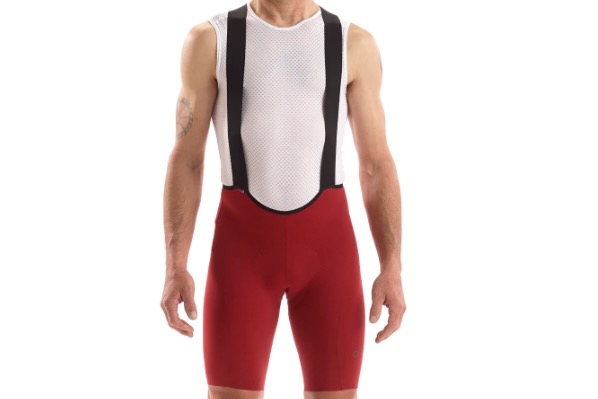
Pros
- Unmatched comfort
- Perfect pad position
- Multitude of colors
Cons
- Expensive
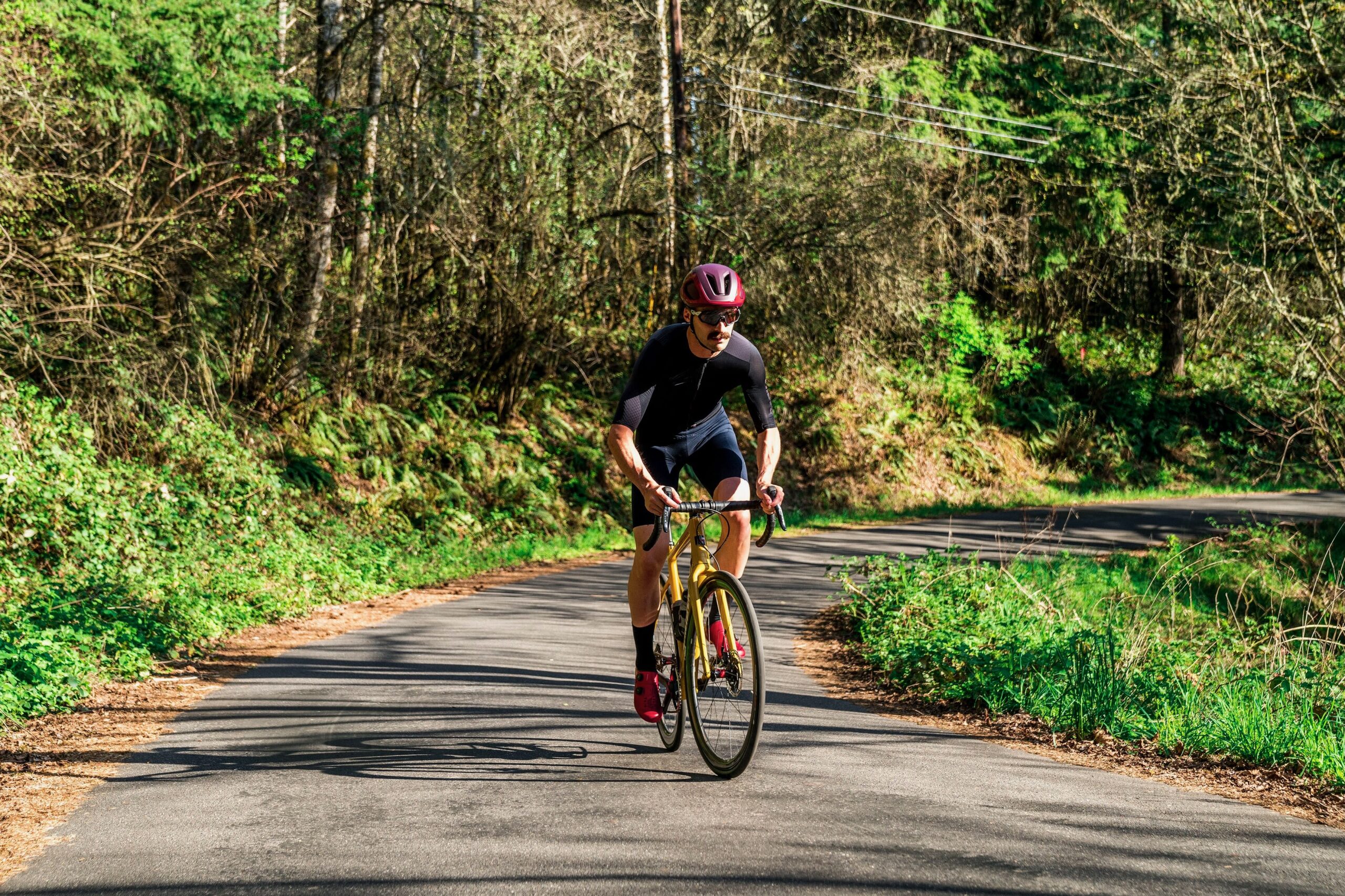
Pearl Izumi Attack Bib Short
Specs
- MSRP $100
- Fabric 80% recycled nylon, 20% elastane
- Pad Select Escape 1:1 chamois
- Available colors Black, Navy
- Available sizes S, M, L, XL, XXL
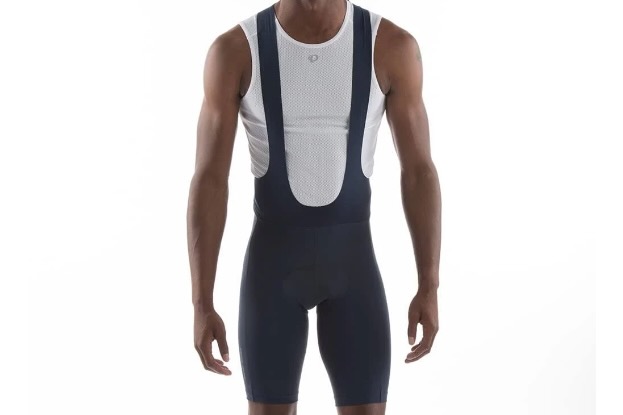
Pros
- Solid value
- Durable construction
Cons
- Pad only comfortable up to around three hours
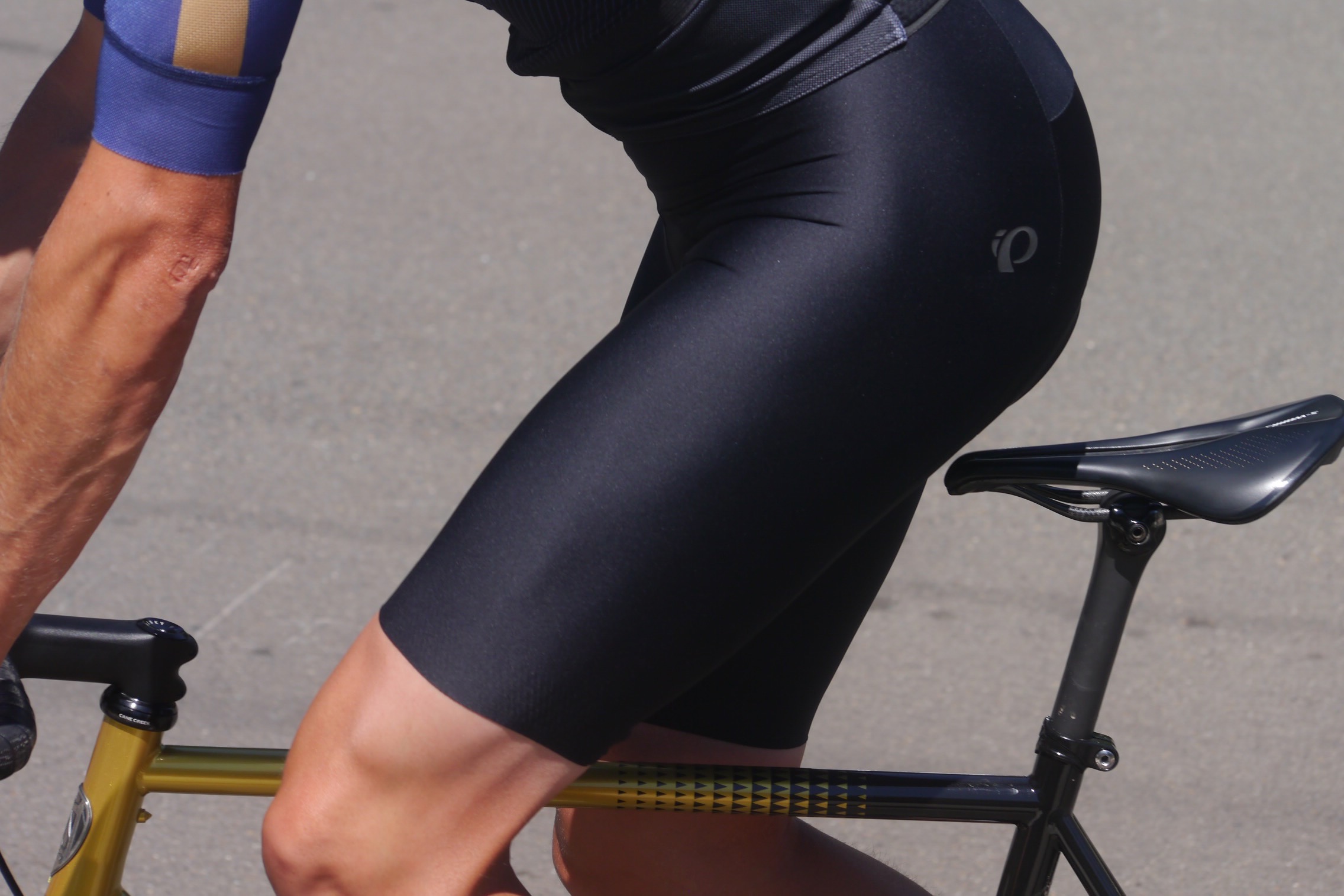
7Mesh MK3 Bib Short
Specs
- MSRP $200
- Fabric 62% nylon, 38% elastane
- Pad Elastic Interface Space chamois
- Available colors Black, Midnight Blue, Peat
- Available sizes XS, S, M, L, XL, XXL, XXXL
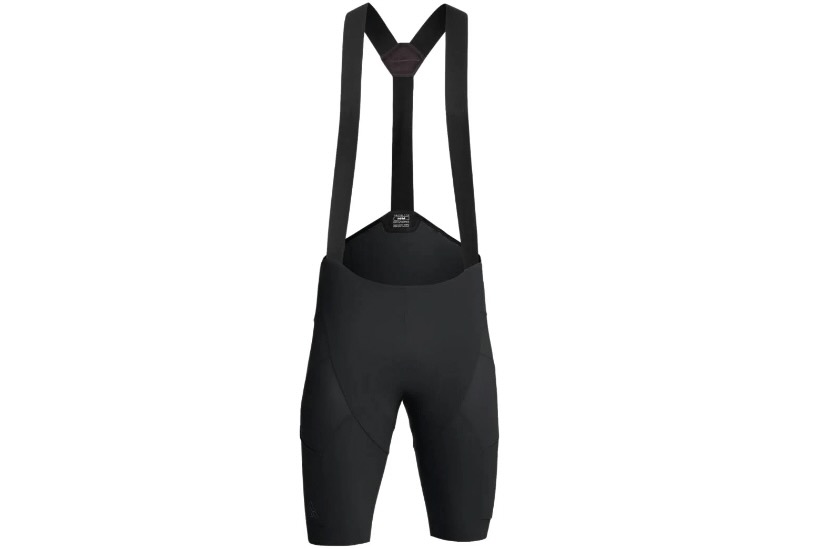
Pros
- Supreme comfort and chamois stability
- Minimal branding
- Sustainably produced
Cons
- None
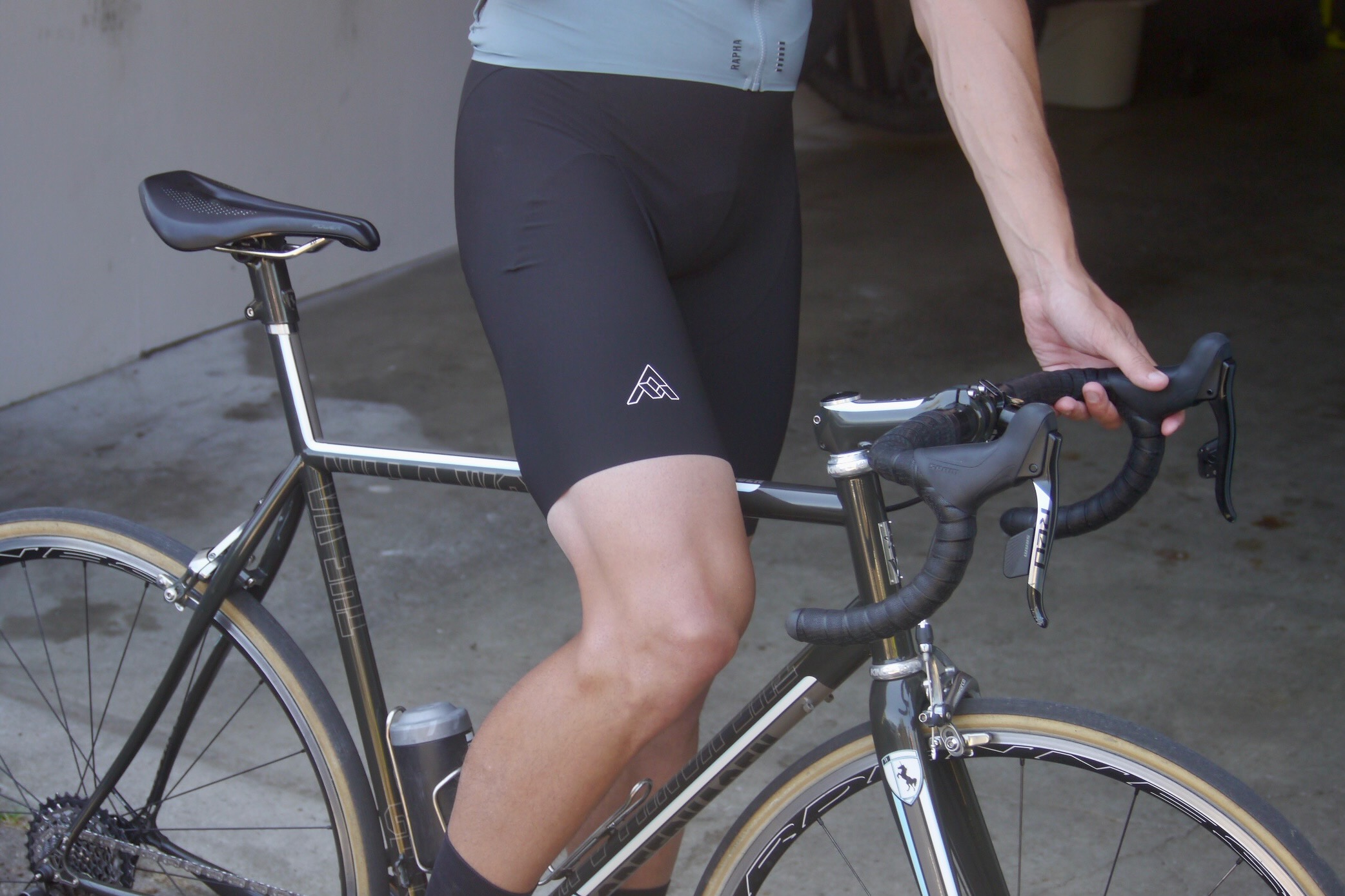
Castelli Free Aero RC Bib Shorts
Specs
- MSRP $220
- Fabric Forza 2 fabric with 32% Lycra
- Pad Progetto X2 Air seat pad
- Available colors Black, Dark Grey, Gunmetal Grey, Saville Blue, Belgian Blue
- Available sizes XS, S, M, L, XL, XXL, XXXL
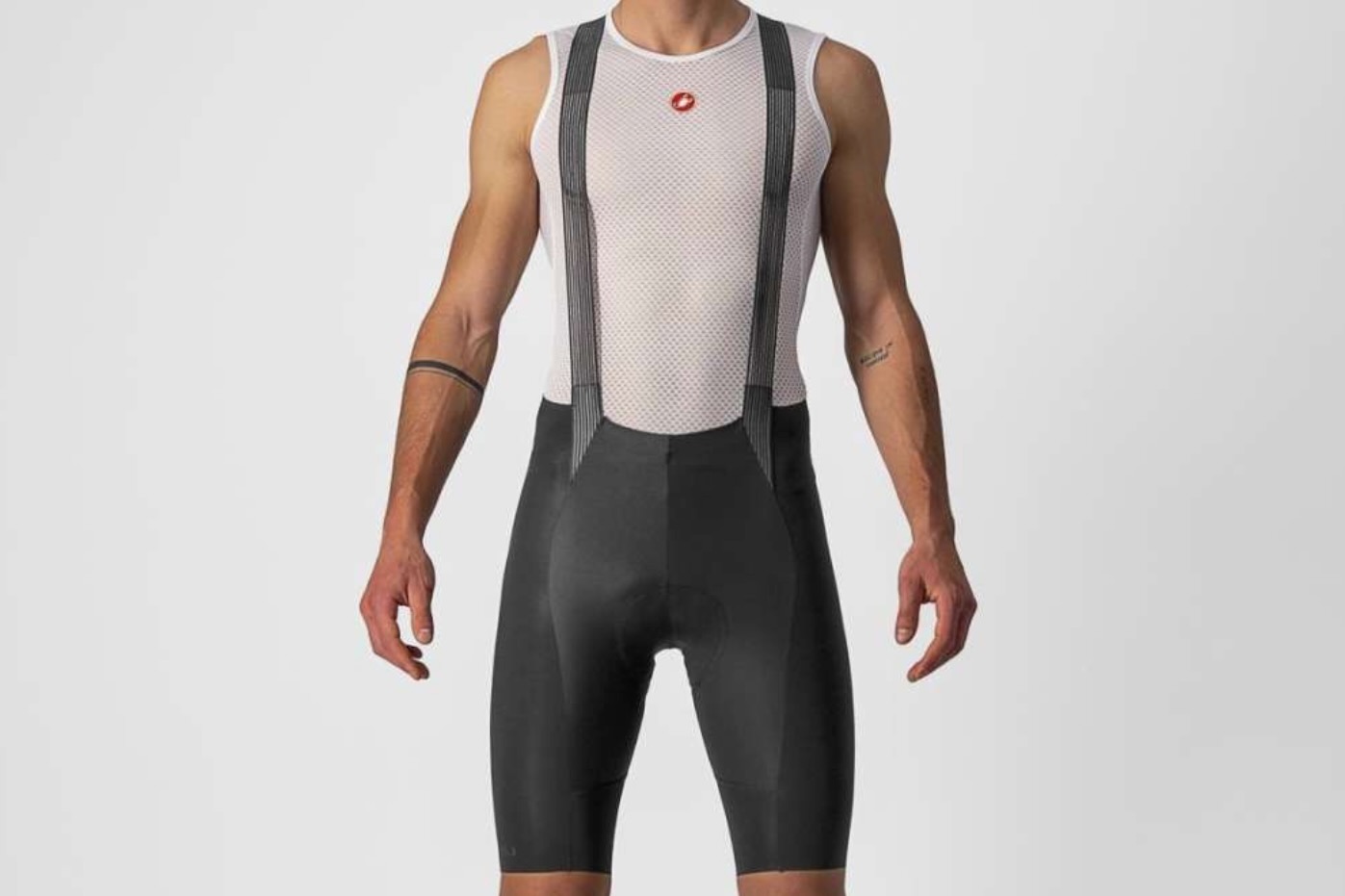
Pros
- Excellent stability on the saddle
- Logos are stitched, not heat-transfer
- Comfortable straps
Cons
- Not comfortable off the bike
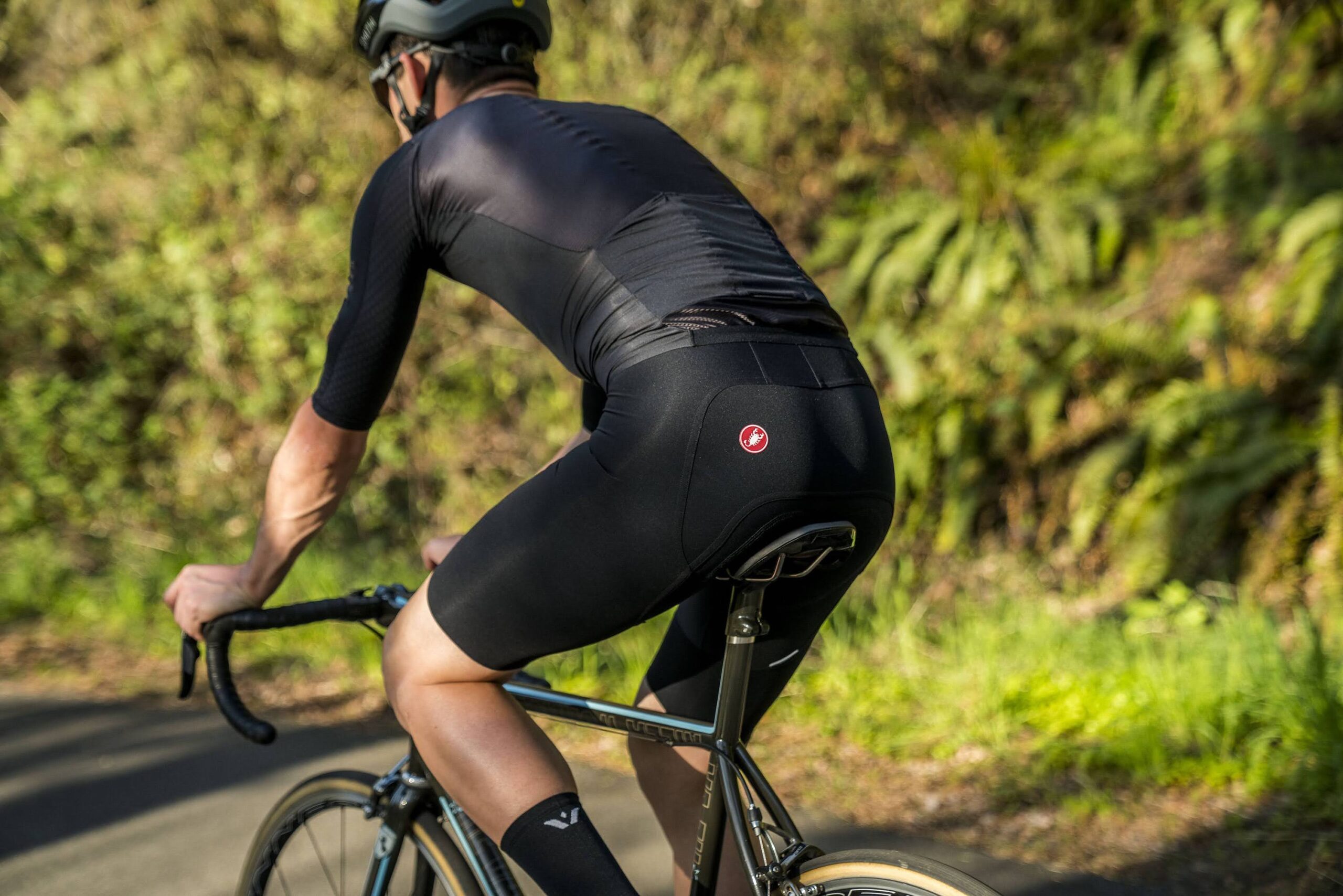
Castelli Endurance 3 Bib Short
Specs
- MSRP $160
- Fabric Endurance Evolution fabric
- Pad Progetto X2 Air Seamless seat pad
- Available colors Black, Belgian Blue
- Available sizes XS, S, M, L, XL, XXL, XXXL
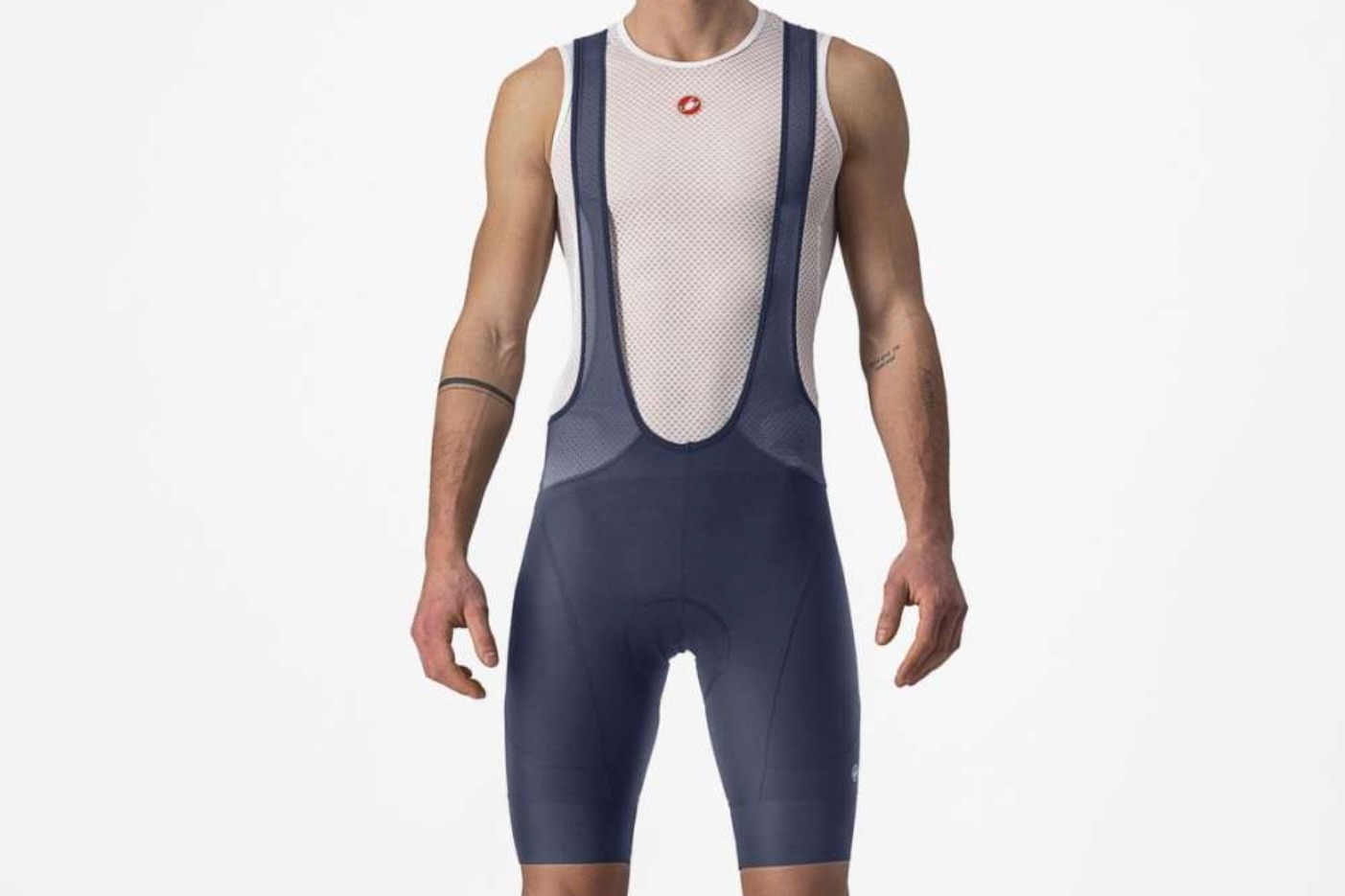
Pros
- Wonderful chamois comfort
- Excellent moisture control
- Reasonable price
Cons
- Heat-transfer logo
The Black Bibs Ultimate Bib Short
Specs
- MSRP $80
- Fabric High compression fabric
- Pad DR Pad of Italy, triple-density
- Available colors Black, Navy, Burgundy
- Available sizes XS, S, M, L, XL, XXL, XXXL
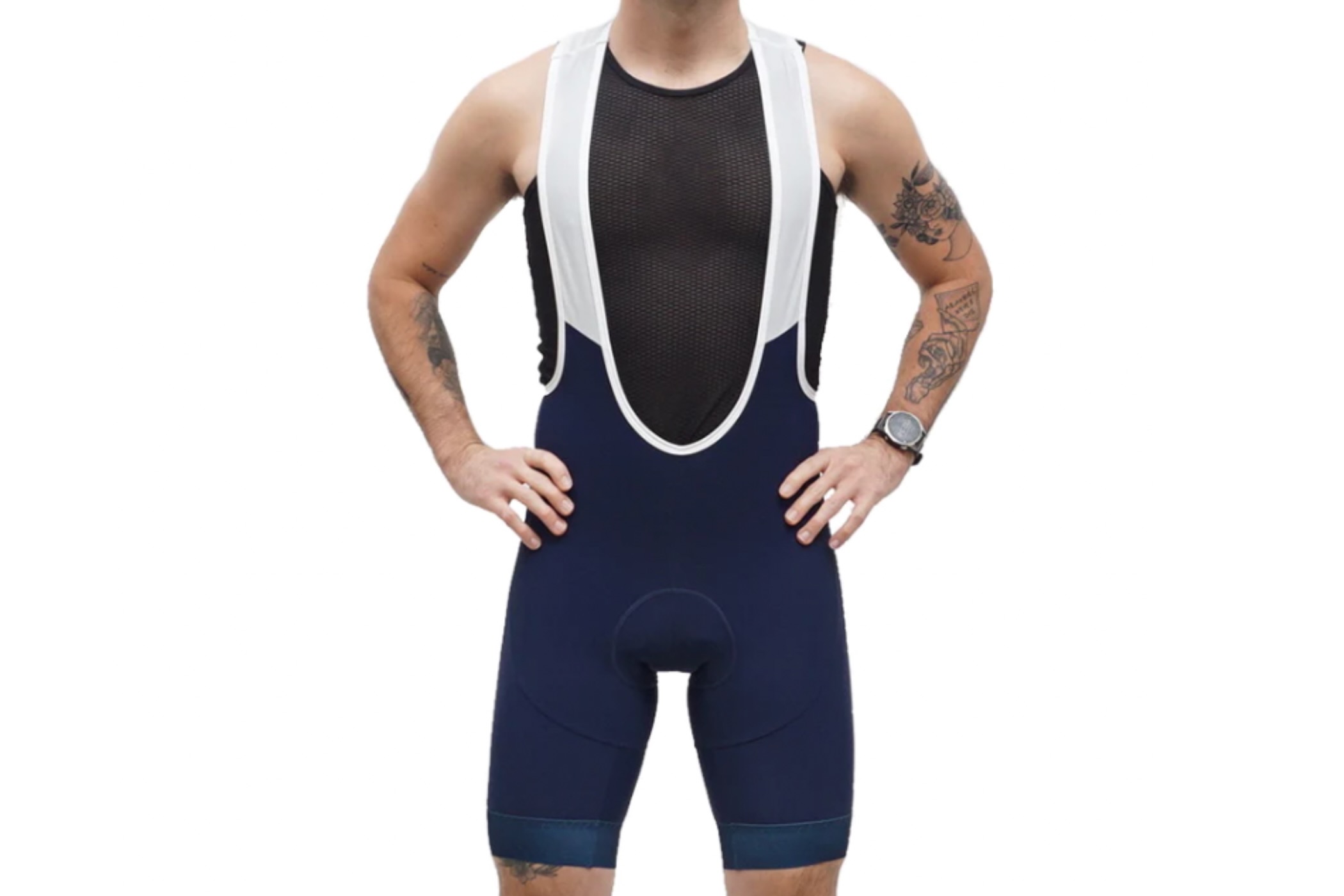
Pros
- No branding
- Affordable
- Great fit
- Also offered with long straps, long inseam, short inseam
Cons
- Tends to slide forward on the saddle
- More stitching than more expensive models
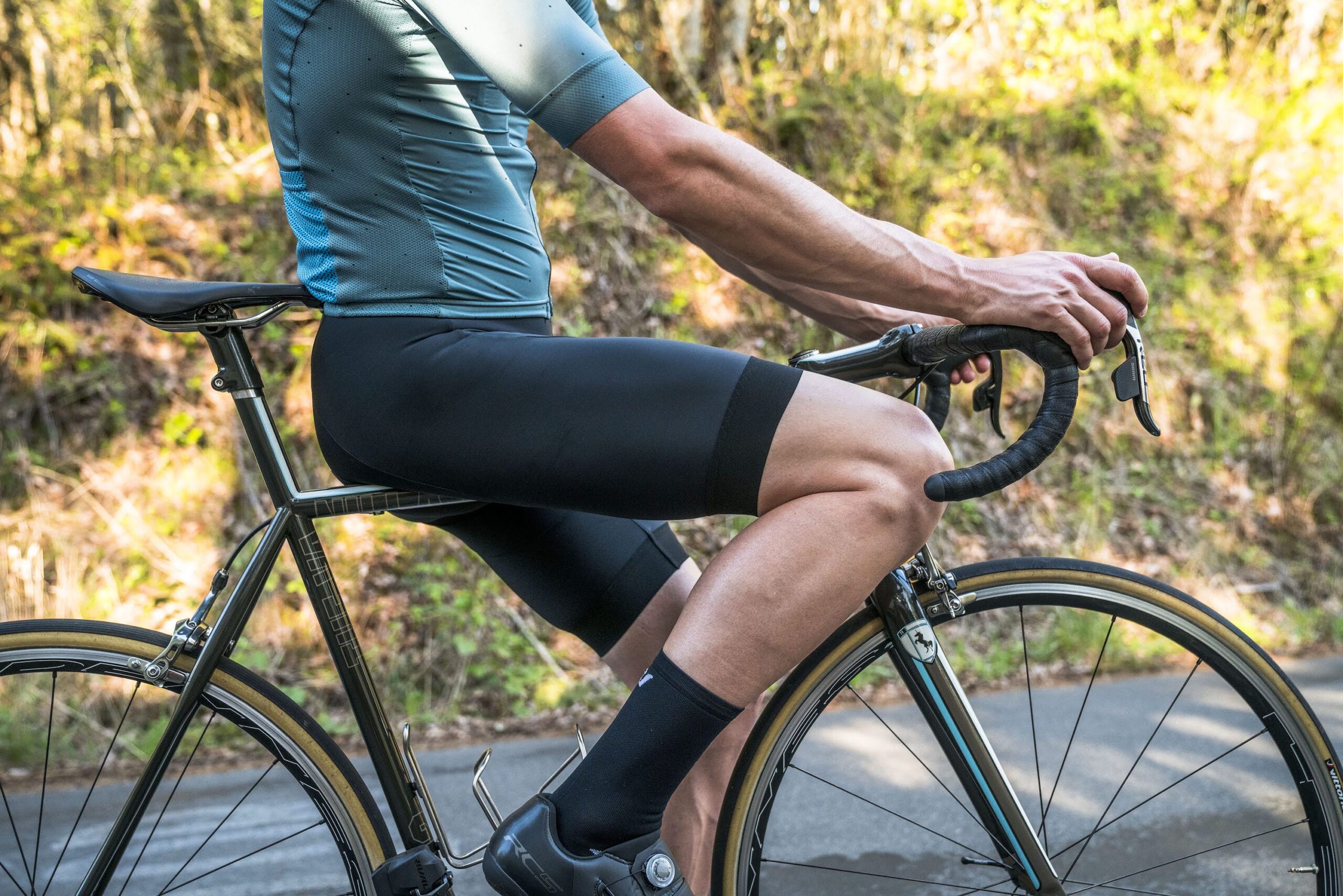
Velocio CONCEPT Bib Short
Specs
- MSRP $309
- Fabric 74% Polymide,26% Elastane
- Pad Integrated "invisible" chamois
- Available colors Oxide Red, Navy Blue, Black
- Available sizes XS, S, M, L, XL, XXL, XXXL, XXXXL
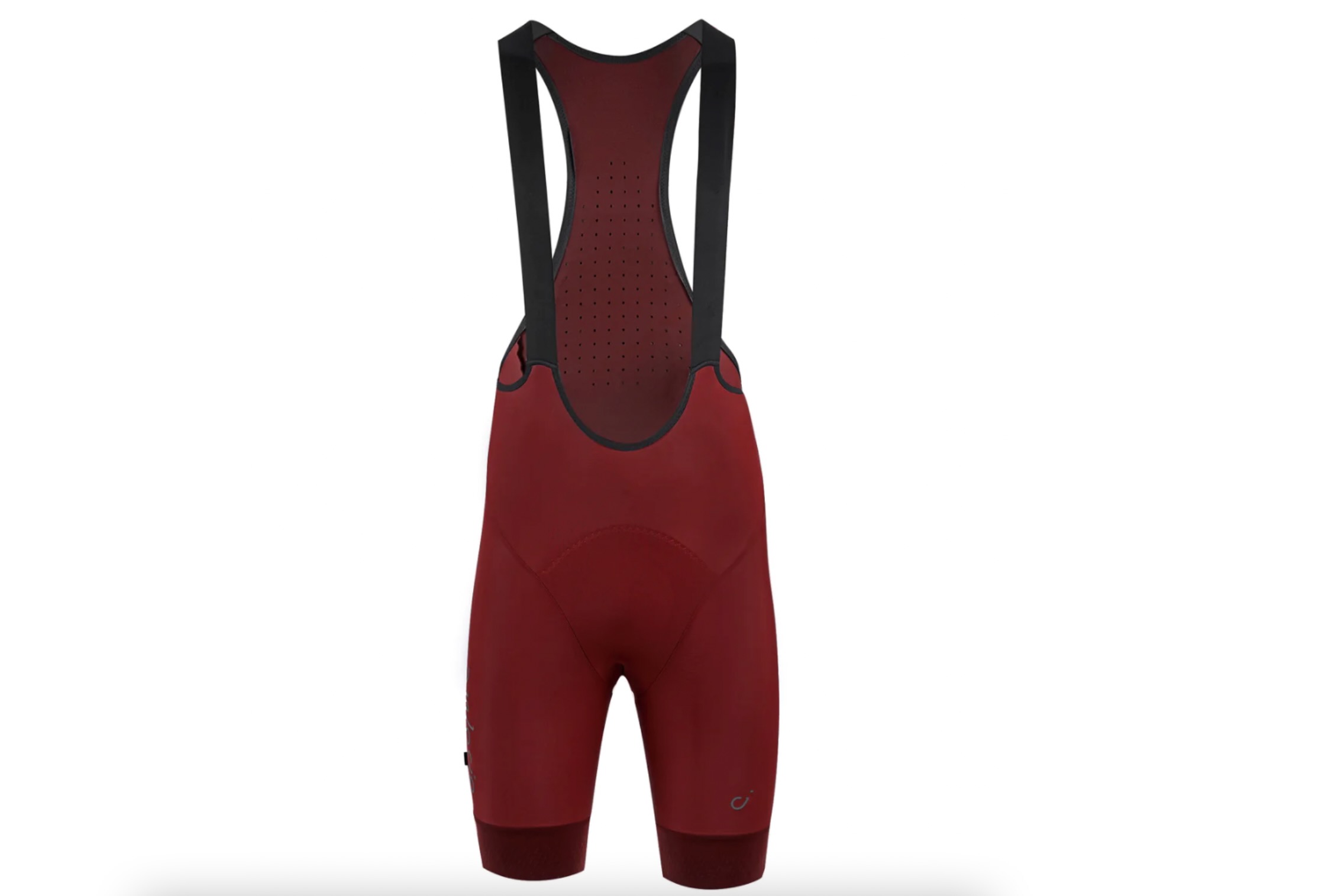
Pros
- Highly compressive fit
- Aerodynamic paneling saves watts
Cons
- Expensive
Endura Pro SL EGM Bib Short
Specs
- MSRP $230
- Fabric 78% nylon, 22% elastane
- Pad 800 Series Conform EGM Pad
- Available colors Black, Deep Teal, Ink Blue
- Available sizes XS, S, M, L, XL, XXL
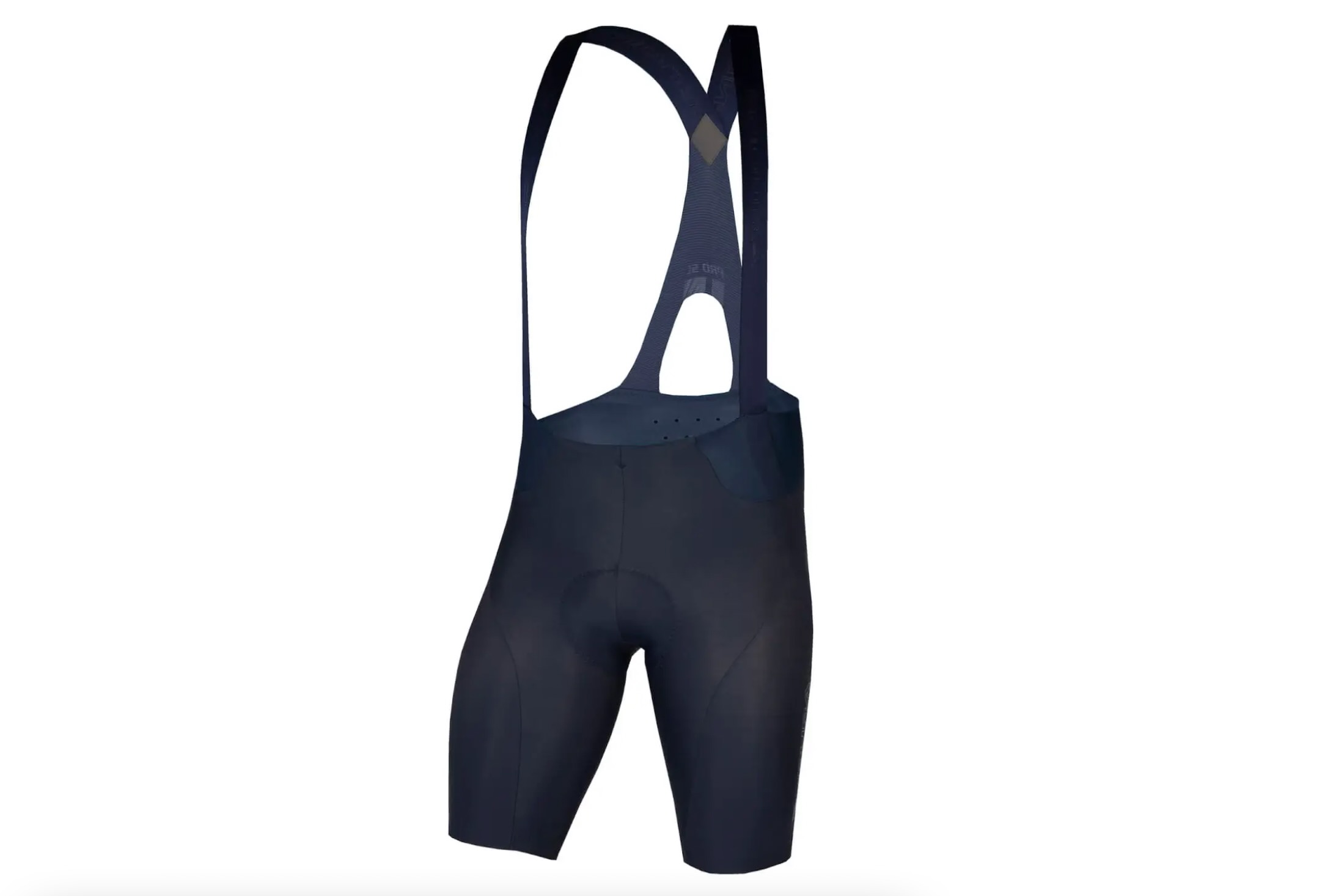
Pros
- Exceptional seated comfort
- Wonderful fit and support
- 2 leg length options
- 90 day satisfaction guarantee
Cons
- Branding unattractive
Rapha Pro Team Training Bib Short
Specs
- MSRP $195
- Fabric Fabric: 74% Recycled Elastane, 26% Nylon
- Pad Pro Team Training chamois
- Available colors Black, Dark Navy
- Available sizes XS, S, M, L, XL, XXL, XXL
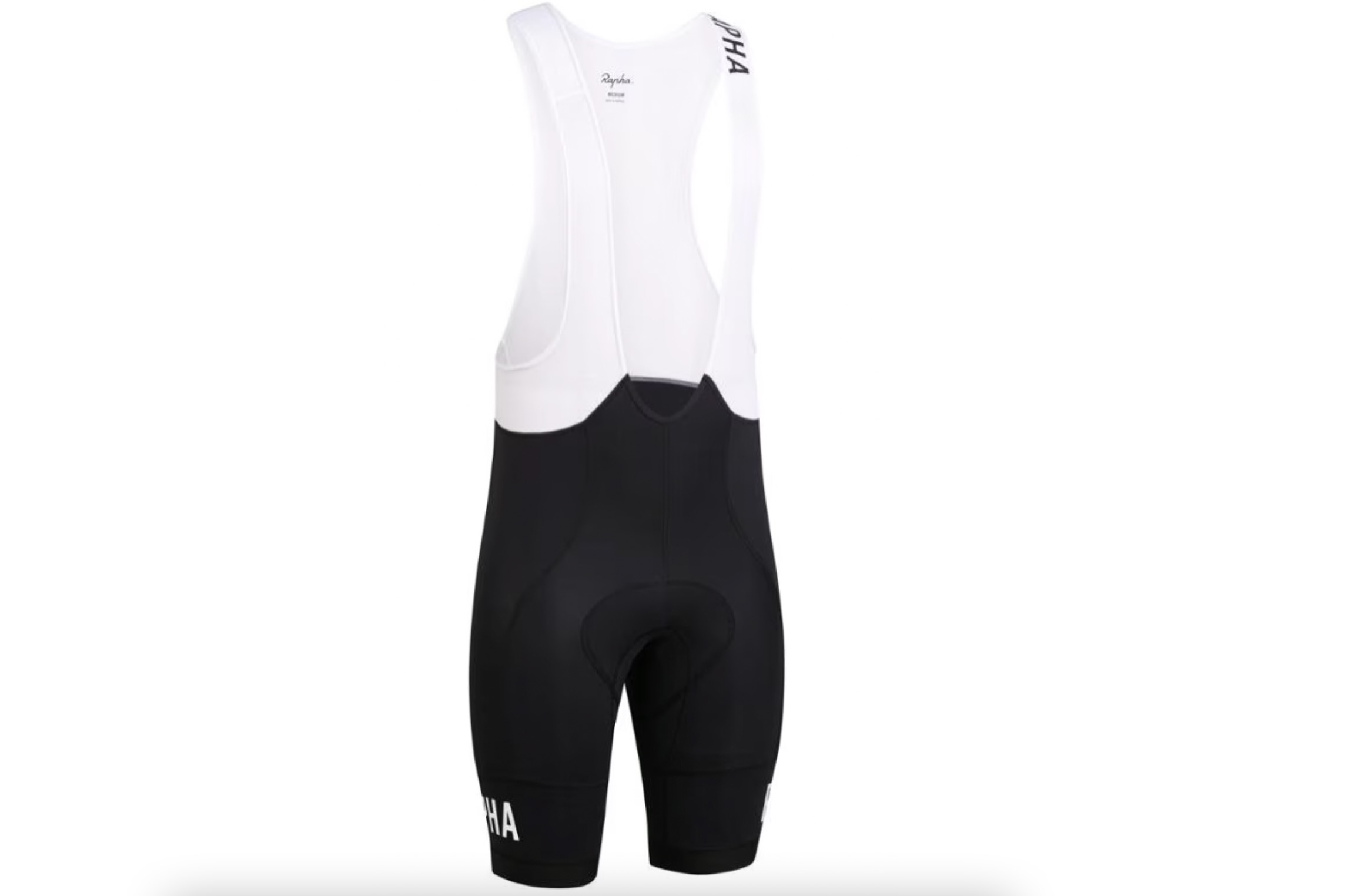
Pros
- Excellent pad comfort
- Great fit
- Adaptable to a wide range of temperatures
Cons
- Moderately expensive
Castelli Competizione Bib Short
Specs
- MSRP $140
- Fabric Affinity Pro Lycra, Vortex BLC textured
- Pad KISS Air2 seat pad
- Available colors Black, Dark Gray, Forest Gray, Deep Green, Saville Blue, Belgian Blue
- Available sizes XS, S, M, L, XL, XXL, XXXL
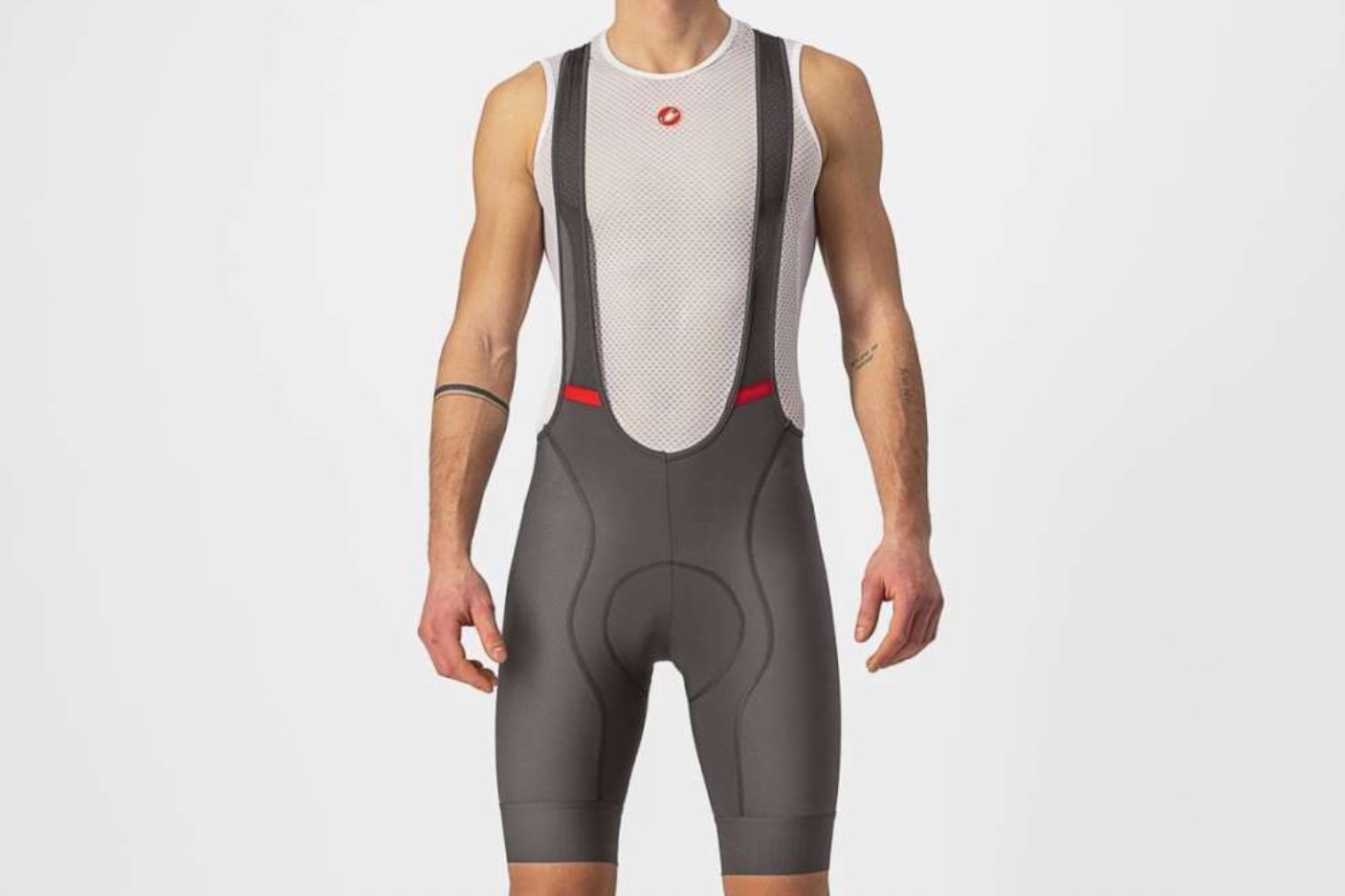
Pros
- Great Fit
- Excellent pad comfort
- Durable construction
Cons
- Heat transfer logos
Sportful Bodyfit Pro LTD Bib Short
Specs
- MSRP $190
- Fabric 80% Polyamide, 20% Elastane
- Pad:
- Available colors Black, Galaxy Blue
- Available sizes S, M, L, XL, XXL, 3XL
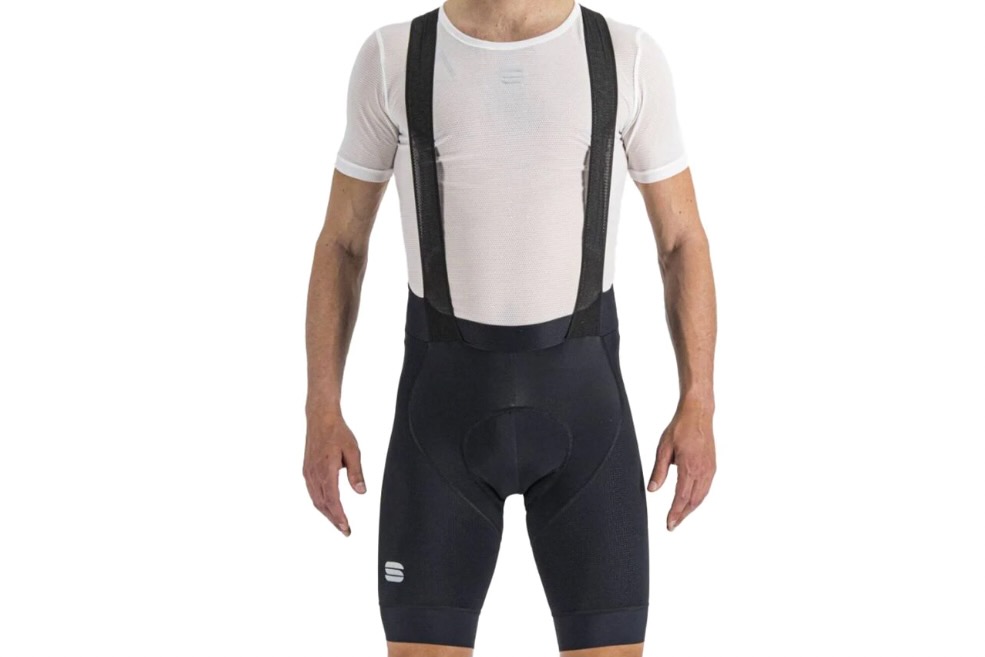
Pros
- Comfortable pad
- Race-oriented fit
Cons
- Straps are fussy and require a base layer
Cycling Bib Shorts Comparison Chart
| Bib Short Model | MSRP | Fabric | Pad | Colors | Available Sizes |
|---|---|---|---|---|---|
| Velocio LUXE | $279 | LUXE fabric: 63% polyamide, 37% elastane | Velocio Signature chamois | 7 | XS – 4XL |
| Pearl Izumi Attack | $100 | 80% recycled nylon, 20% elastane | Select Escape 1:1 chamois | 2 | S – XXL |
| 7Mesh MK3 | $200 | 62% nylon, 38% elastane | Elastic Interface Space chamois | 3 | XS – XXL |
| Castelli Free Aero RC | $220 | Forza 2 with 32% lycra | Progetto X2 Air seamless seat pad | 5 | XS – 3XL |
| Castelli Endurance 3 | $160 | Endurance Evolution fabric | Progetto X2 Air seamless seat pad | 2 | XS – 3XL |
| The Black Bibs Ultimate | $80 | High compression fabric | DR Pad of Italy, triple-density | 3 | 2XS – 3XL |
| Velocio CONCEPT | $309 | 74% polyamide, 26% elastane | Integrated “invisible” chamois | 3 | XS – 4XL |
| Endura Pro SL EGM | $230 | 78% nylon, 22% elastane | 800 Series Conform EGM Pad | 3 | XS – XXL |
| Rapha Pro Team Training | $195 | 74% recycled nylon, 26% elastane | Pro Team Training chamois | 2 | XS – XXL |
| Castelli Competizione | $140 | Affinity Pro Lycra, Vortex BLC textured | KISS Air2 seat pad | 6 | XS – 3XL |
| Sportful Bodyfit Pro LTD | $190 | 80% polyamide, 20% elastane | TC Pro seat pad | 2 | S – 3XL |
Why Should You Trust Bikerumor?
The team at Bikerumor has been obsessing over cycling gear for well over a decade. From the bikes we ride to the clothes we wear, we are always seeking the right gear to enhance our experience, comfort, and enjoyment. Whether for first-look articles or long-term reviews, our editorial team gets to try out the latest and greatest cycling kit on the market. For the purposes of our buyer’s guides, however, we’ve sought out experienced individuals to test and compare products side by side to form the basis for our recommendations.
Our cycling bib shorts review author, Bennett Shane, has been cycling for the past 2 decades. After 10 years of racing road and gravel, Bennett has shifted gears and now rides primarily for fun and fitness, focusing on long rides and big climbs throughout the Pacific Northwest near his home in Portland, OR. Over the years, Bennett has worked for numerous brands in the cycling industry, giving him unique knowledge and understanding of products from the inside out. His extensive cycling background combined with his industry experience make him particularly adept at noticing the subtle and nuanced differences between the products he tests. He spent hundreds of hours and pedaled thousands of miles while testing the bib shorts in this review while scrutinizing every aspect of their design, fit, comfort, and performance. In addition to testing the best cycling bib shorts, Bennett has also contributed to some of our other buyer’s guides including the best road bike helmets and the best road bike shoes.
After researching the best cycling bibs on the market, we rounded up a diverse selection of 11 models for testing. From the back roads of Oregon to the Blue Ridge Parkway in North Carolina, each pair was put through its paces in a wide range of temperatures and conditions while important elements like materials, leg grippers, straps, and pads were analyzed and compared to determine our favorites or those that excel in specific ways.
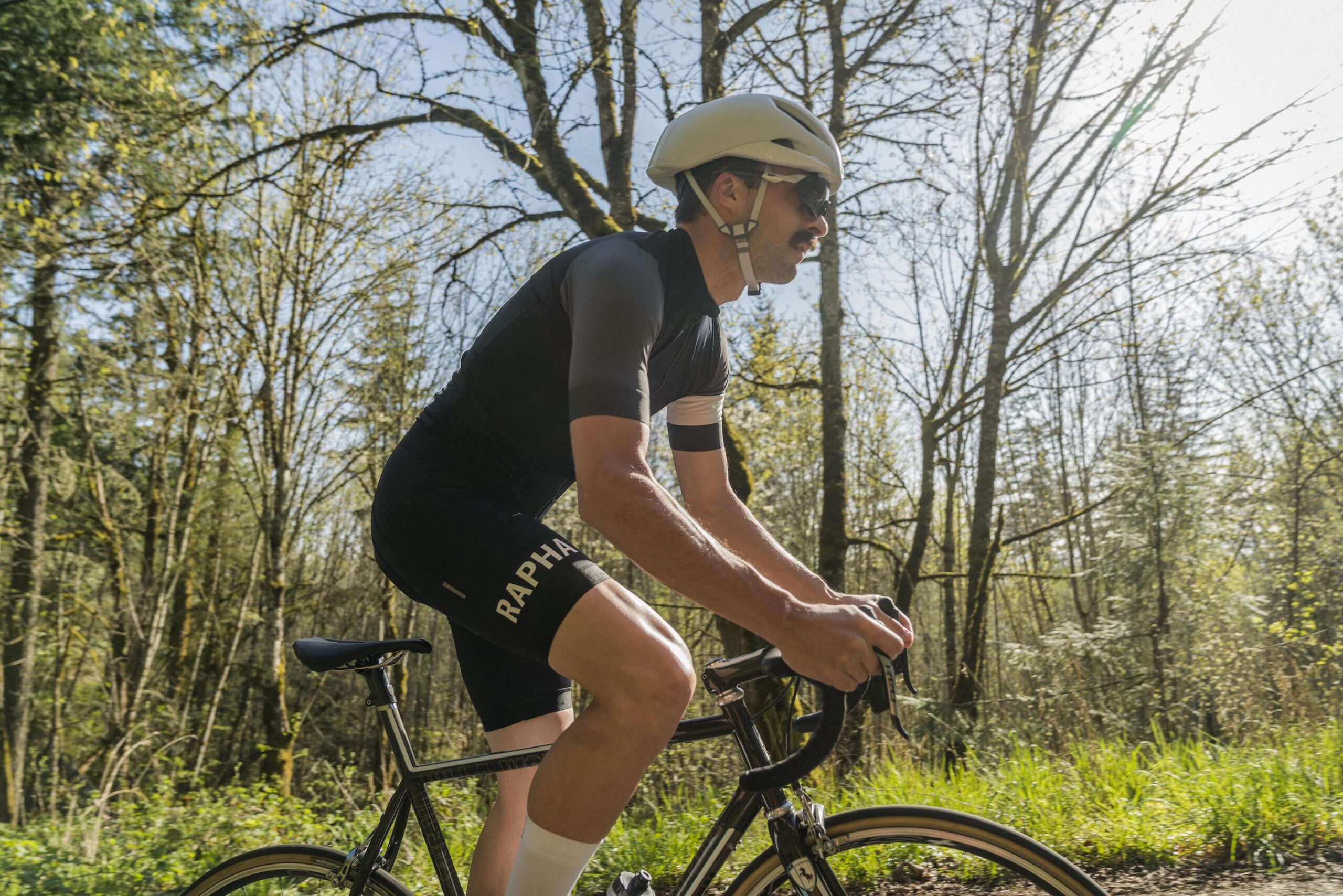
Buying Advice: How to Choose Cycling Bib Shorts
When it comes to cycling bib shorts, there are a lot of options on the market. Having so much variety is fantastic, but it can make it difficult to understand exactly what you need. In this section, we’ll cover some of the important things to consider when searching for your next pair of cycling bib shorts.
Bib Shorts vs Non-Bib Shorts
The term “bib shorts” is a bit confusing, since we don’t usually think of shorts as including shoulder straps. So, what’s the deal with these straps? To understand their purpose and benefit, it’s helpful to visualize how you’ll be positioned during your ride. On a road bike, your hips are hinged forward, and your spine is extended, positioning your shoulders well forward of your hips. With this position in mind, you’ll see that because bib short straps wrap around your shoulders, the forward flexion of your body helps the straps keep the bib shorts under a bit of tension. This tension in the straps keeps the shorts – most critically, the pad – securely positioned for better support and comfort than a pair of padded shorts without straps can provide.
Additionally, since the straps are holding the shorts in position, there is no need for a tight waistband to perform that task. This reduces pressure on the abdomen, and it means that your shorts won’t slip down or sag over the course of a ride.
The Pad
The pad, or “chamois”, is the most critical element of any bib short, as it creates a functional interface between your ischium – often called sitz bones – and the saddle of your bicycle. This pad is attached, typically stitched, to the inside of the shorts and is a cushioned layer between your body and saddle. When combined with snug-fitting shorts, the pad should be tight against your skin. In addition to providing some cushion, these pads are also intended to absorb and wick away moisture.
Pad shape, thickness, and foam density all vary between bib short models, depending on the duration and intensity of the riding for which they were designed. Endurance rides over three hours will be more pleasant when using a thicker and denser pad. More substantial padding will not only better protect your backside from road buzz and harsh bumps, but the extra material will retain the shape to resist creasing or bunching.
Conversely, racers may prefer a thinner, lower-density pad which offers a more direct connection to the saddle with less interference and friction during high-cadence pedaling. Low-density pads are supple and accommodating, meaning the pelvis can rotate forward freely to achieve an aggressive riding position. Low-density padding can easily articulate to your anatomy, which may offer a more secure and naturally comfortable fit.
Beyond thickness, pads also vary in length and width, and this will factor into whether your bibs fit properly. Thankfully, many companies have incorporated size-specific pads that are designed to match the size of the legs and waist.
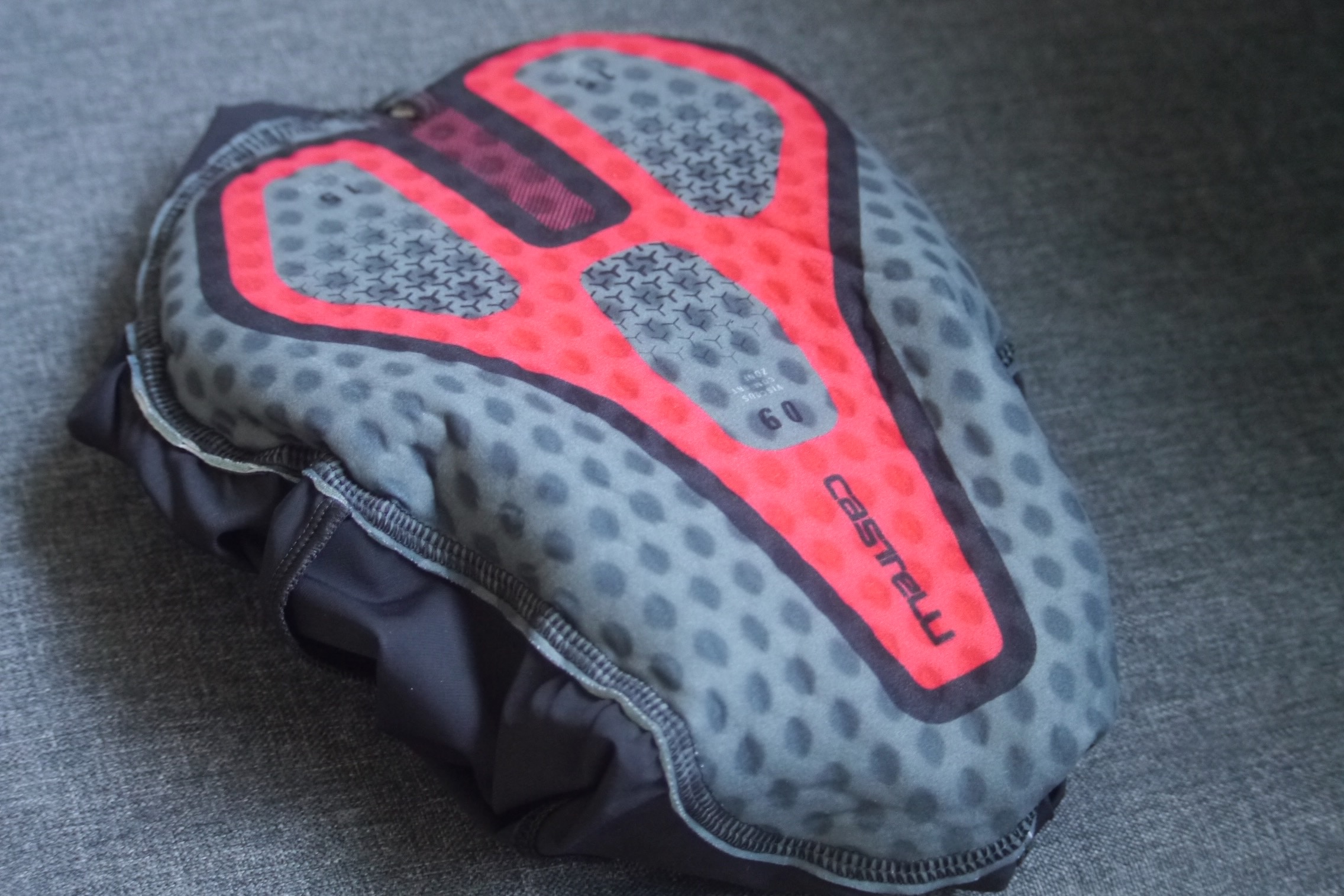
Materials and Stitching
Most cycling shorts are made from similar materials that consist of a blend of nylon/polyester/polyamide and lycra/spandex/elastane. These fabrics are designed to be thin, lightweight, and quick drying while also providing a good amount of stretch and/or compression. The main body of the shorts is typically divided up into panels with the goal of contouring the shorts to the shape of the body.
These panels then need to be stitched together and the stitching can markedly affect the fit and comfort of bib shorts. More advanced bib shorts will be constructed with less stitching, thanks to articulated and flexible fabrics, and more intelligent arrangement of the fabric panels that surround your body. Poorly placed stitching can result in puckered material or compromised fit and support, while less or better-oriented stitching will often provide a feeling of a second skin. Stitched seams are also one of the most common points of failure on bib shorts, because of the high degree of pulling and friction to which seams are subjected along with the significant stretch built into the fabrics used in their construction. Therefore, minimal and intelligently placed stitching is key for both comfort and the longevity of bib shorts. While significant stretchiness is required for bib shorts, this stretch must be balanced with durability and support. More advanced fabrics balance all three of these demands and also evacuate moisture rapidly during intense efforts in warm conditions.
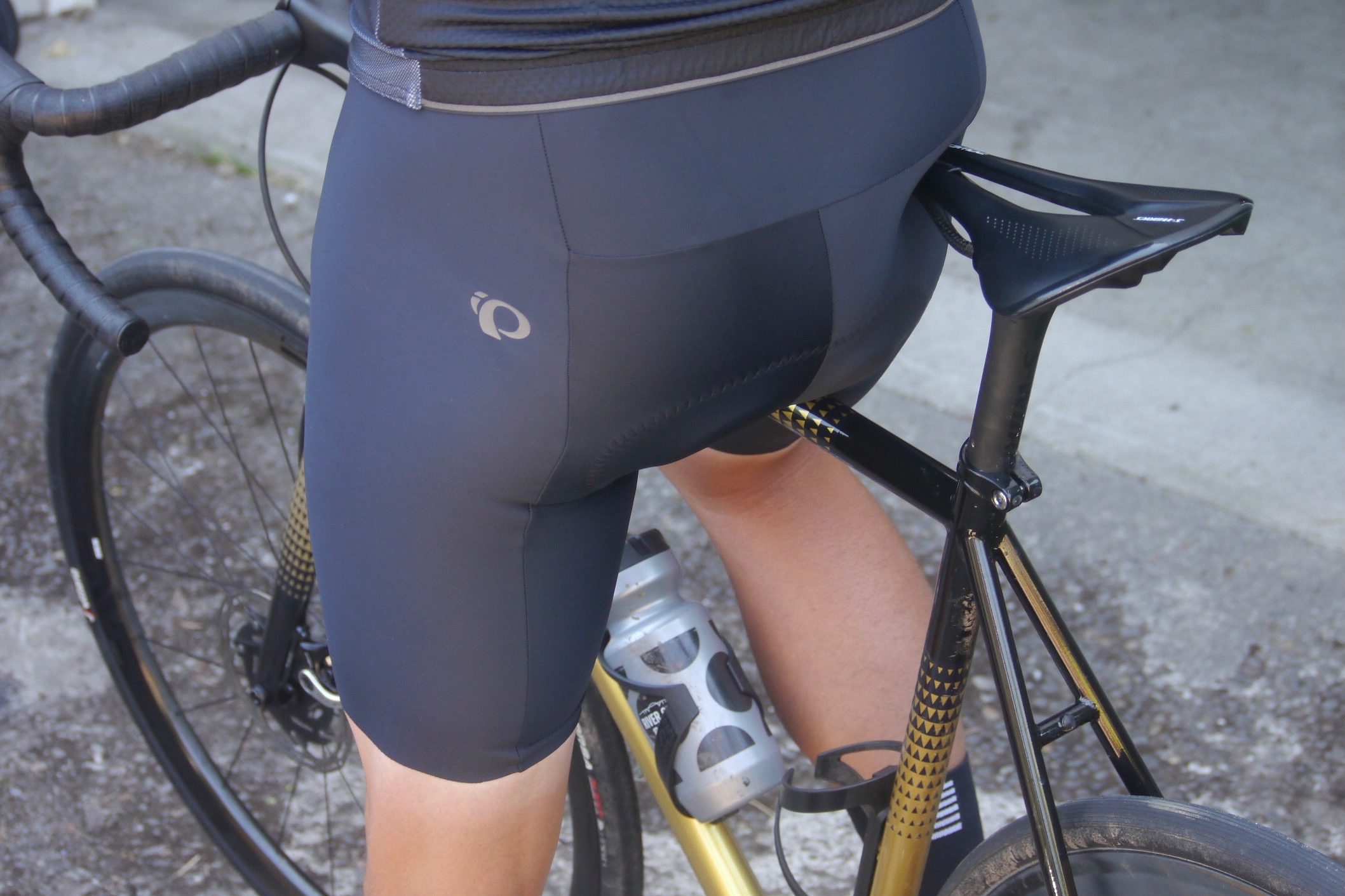
Straps
Bib short straps must stretch to fit a wide range of torso and shoulder shapes, but should also remain flat against the body and avoid chafing your chest and shoulders. Generating sufficient hold to provide a solid connection between the upper and lower body requires strap material to have an evenly-balanced elasticity. Ideally, you won’t feel the straps on your upper body after a few minutes on the bike, but rather just a very light tension over the shoulders.
Traditionally, straps were constructed of simple polyester mesh with thicker stitched trim at the edges. This style of strap worked well for the simple task of holding the shorts up and back but tended to twist and bunch up, creating pressure points and chafing. These days most bib shorts feature broad, flat straps that are perforated or made of semi-transparent material, often with edges that are raw-cut, rather than stitched. This type of strap stays flat against the skin to prevent chafing and remains cool enough to keep you dry and comfortable.
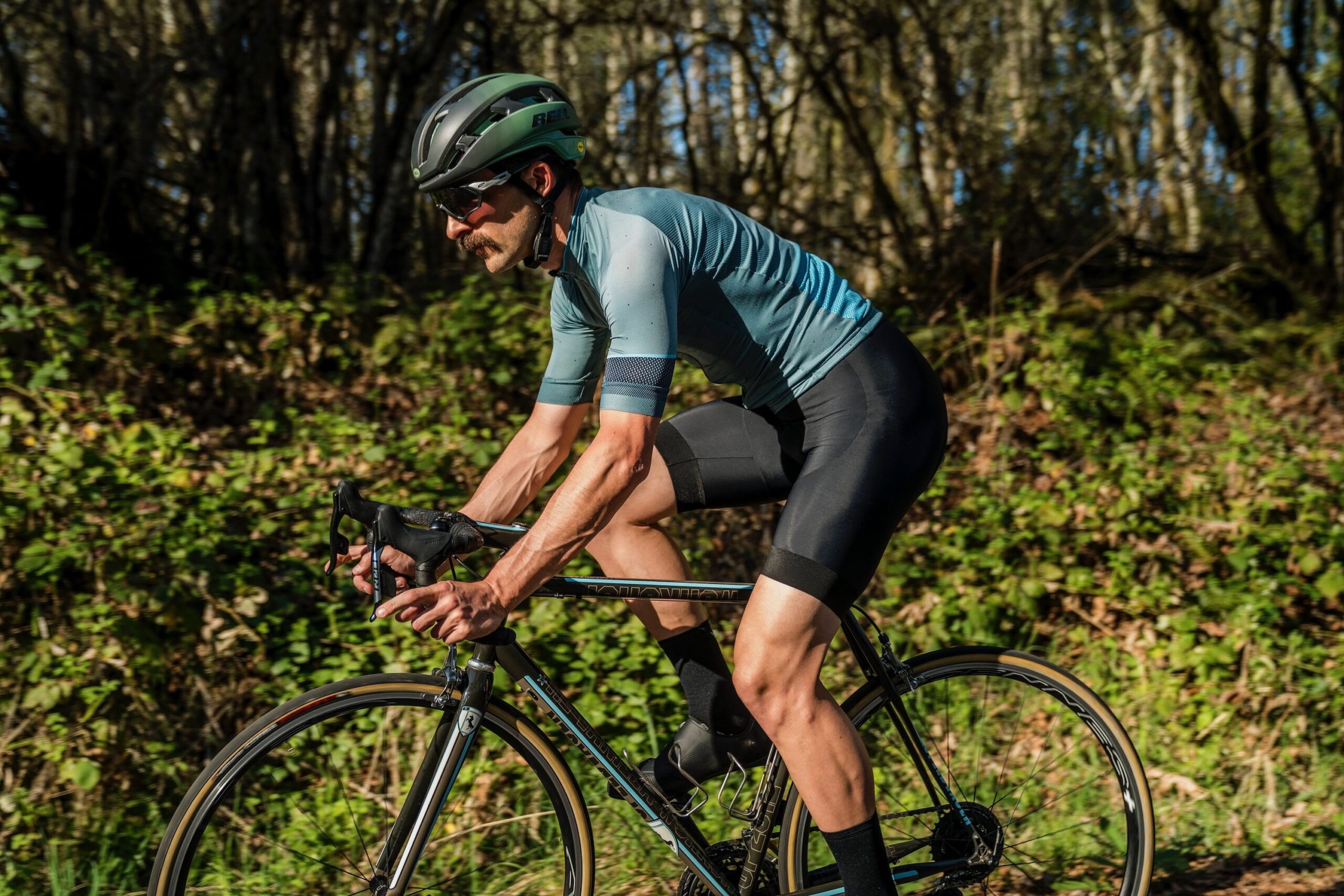
Leg Grippers
Grippers on the legs of bib shorts prevent the shorts from sliding up the rider’s quadriceps. Well-executed grippers achieve this without generating excessive friction on the skin or impeding the stretch of the short’s material in accommodating the motion of pedaling. Many bib shorts, like the Castelli Free Aero RC and the Castelli Endurance 3, forego grippers altogether, by using lycra panels in the lower leg that generate grip by way of compression alone. Since the quadriceps expand and contract dramatically during each pedal stroke, grippers do affect fit at the opening of the leg. In a perfectly fitting bib short with the best gripper style for you, there should be no visible gaps between the bib short opening and your leg throughout your pedaling motion.
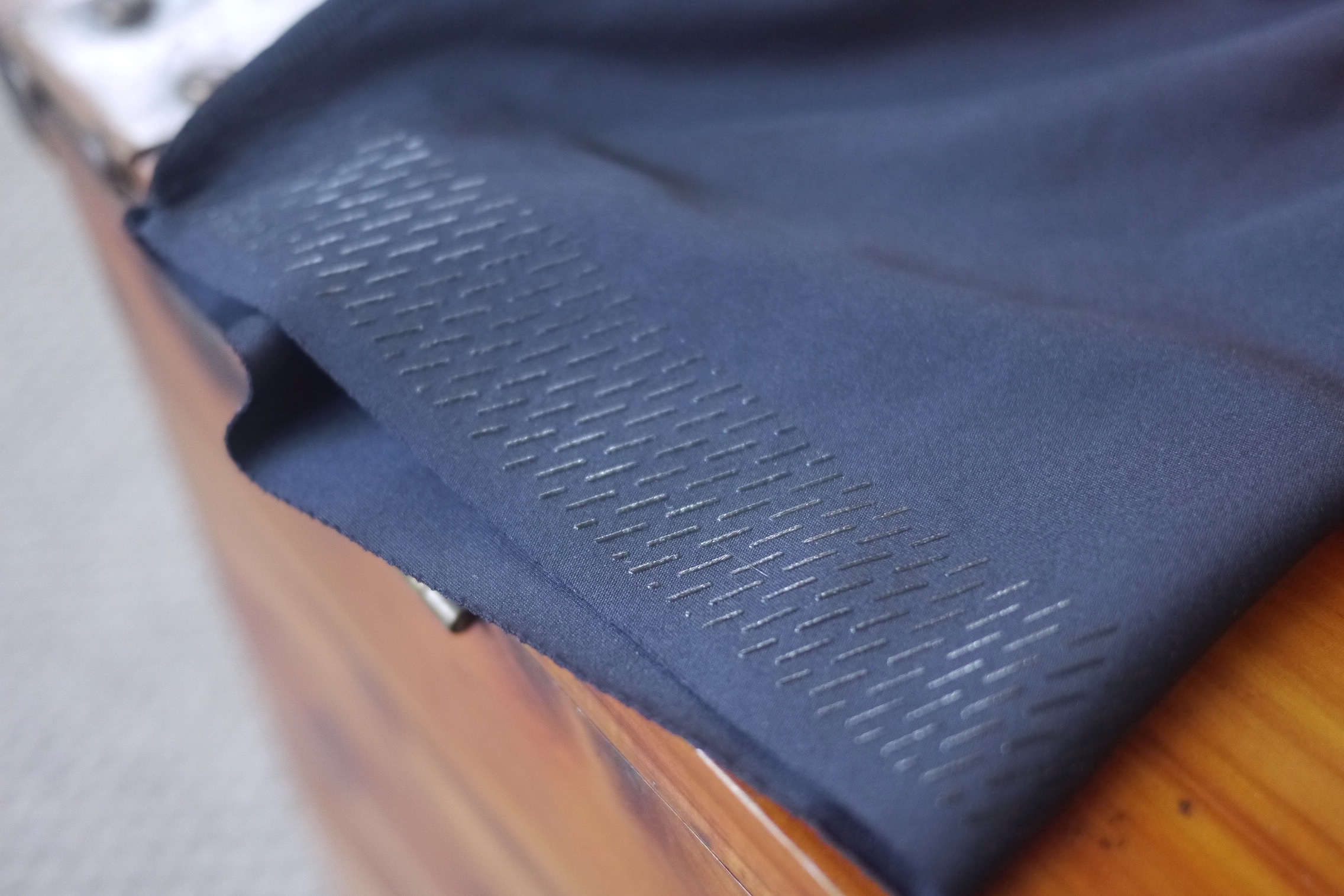
Style
Not everyone wants to look like they are a member of a professional cycling team, and fortunately, these days you don’t have to. Cycling style is constantly changing, and although tight lycra kits are still the preferred apparel for the job, bright, busy, and logo-heavy designs have given way to more subdued looks. Most cycling tops and bottoms are now available in solid color options that have a more understated and timeless style. Colors and tones are generally somewhat muted and earthy, although some brighter options are offered by certain brands. Patterns haven’t gone away, and many brands have both shorts and jerseys with pattern designs, stripes, or team/brand logos. The great thing is there are lots of options, so you can choose the gear that suits your personal aesthetic so you can look how you want to.
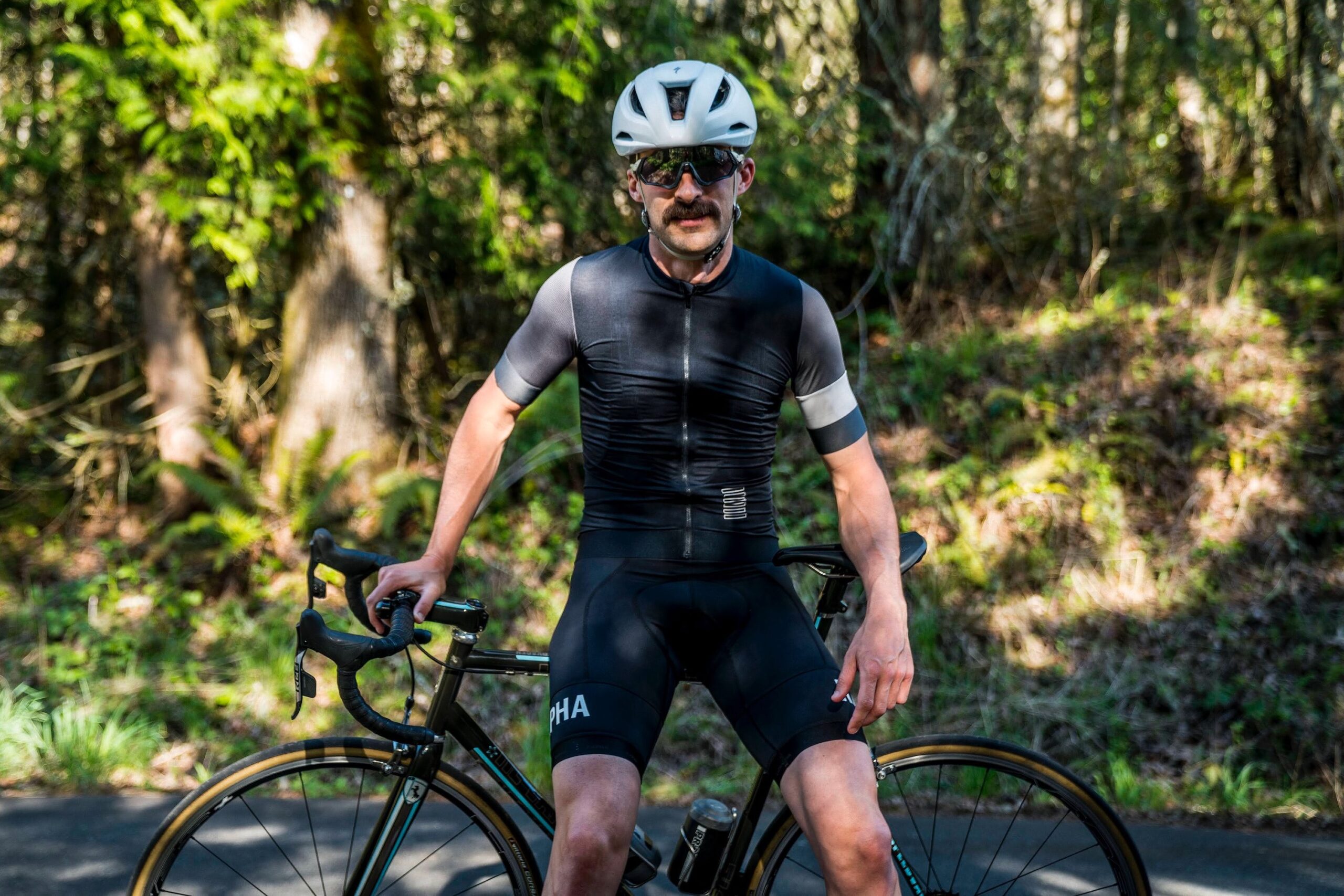
Finding the Right Fit
Finding a perfect-fitting bib short can be tricky without getting in the saddle for a test ride. The next best option is to assume your cycling posture when trying any bib shorts you are considering. In this position, assess the overall fit and feel, checking closely for any discomfort or ill-fitting areas. It’s fair to also judge bib shorts based on how easy (or difficult) it is to pull the straps up and over your shoulders. That said, remember that bib shorts are not designed to be perfectly comfortable when standing upright, and that’s precisely why it’s important to use the cycling position to assess their fit.
If possible, we recommend trying bib shorts on to ensure they are a correct fit. Like any other clothing, they come in a range of sizes to fit various body shapes and sizes. Bib shorts are designed to be form-fitting and have stretch engineered into the fabrics. All provide at least a little compression, although some are specifically designed to be highly compressive. They should be supportive, comfortable, and free of excessively loose or tight spots or pressure points that could cause discomfort over time.
Fortunately, most brands have detailed sizing charts and/or fit guides to help you narrow in on your size.
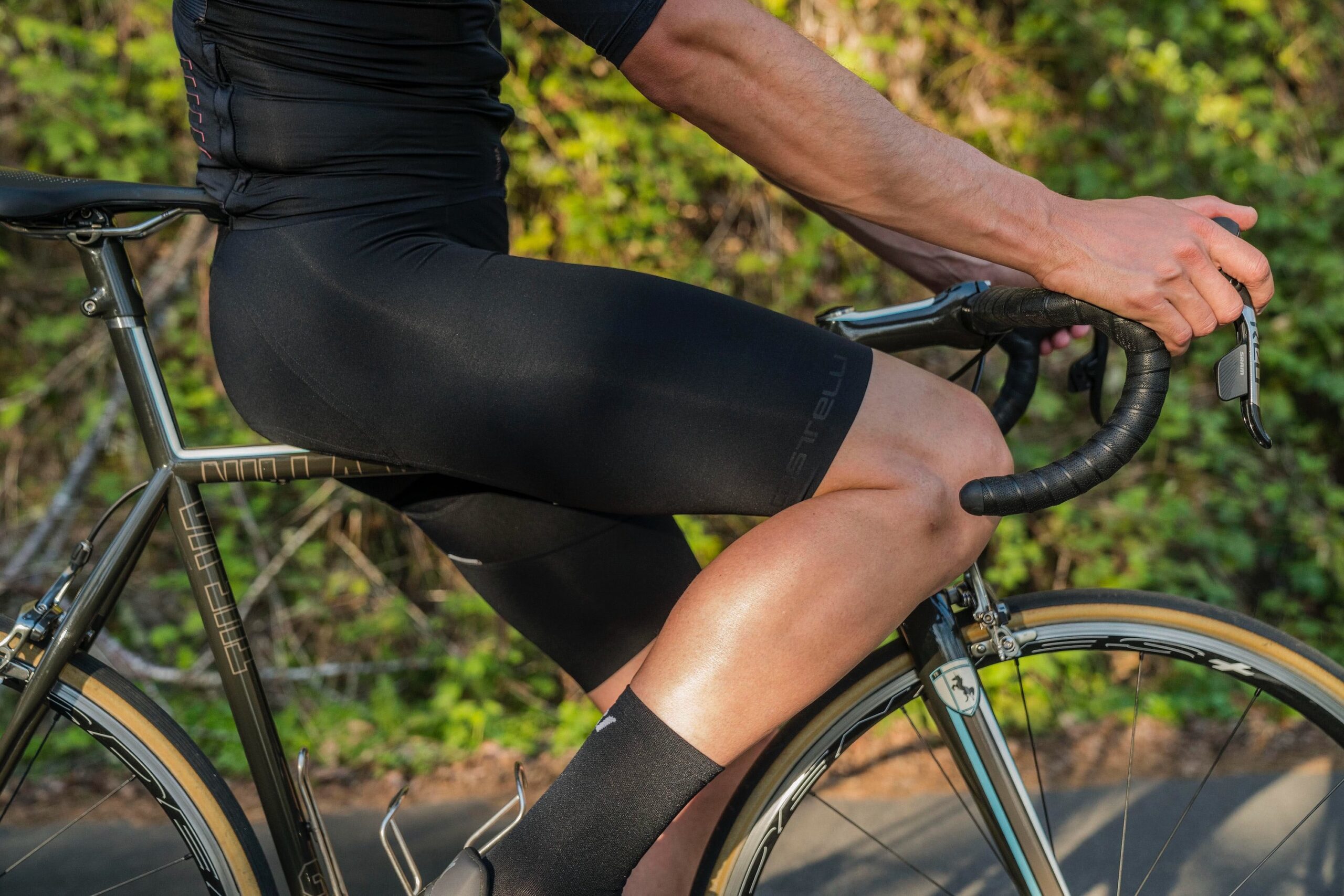
Bike Saddle
The saddle on your bike is another important variable in the comfort equation. Getting a saddle that fits your anatomy and intended use is an absolute must for any serious cyclist. Saddles come in varying widths, profiles, and designs to suit different sit-bone widths, body shapes, and riding styles, and finding the right one can make a huge difference in your comfort, enjoyment, and performance on the bike. There are loads of saddle options on the market, so if you’re experiencing seated discomfort on the bike, we’d recommend experimenting with different models to find something that fits your body and the type of riding you do.
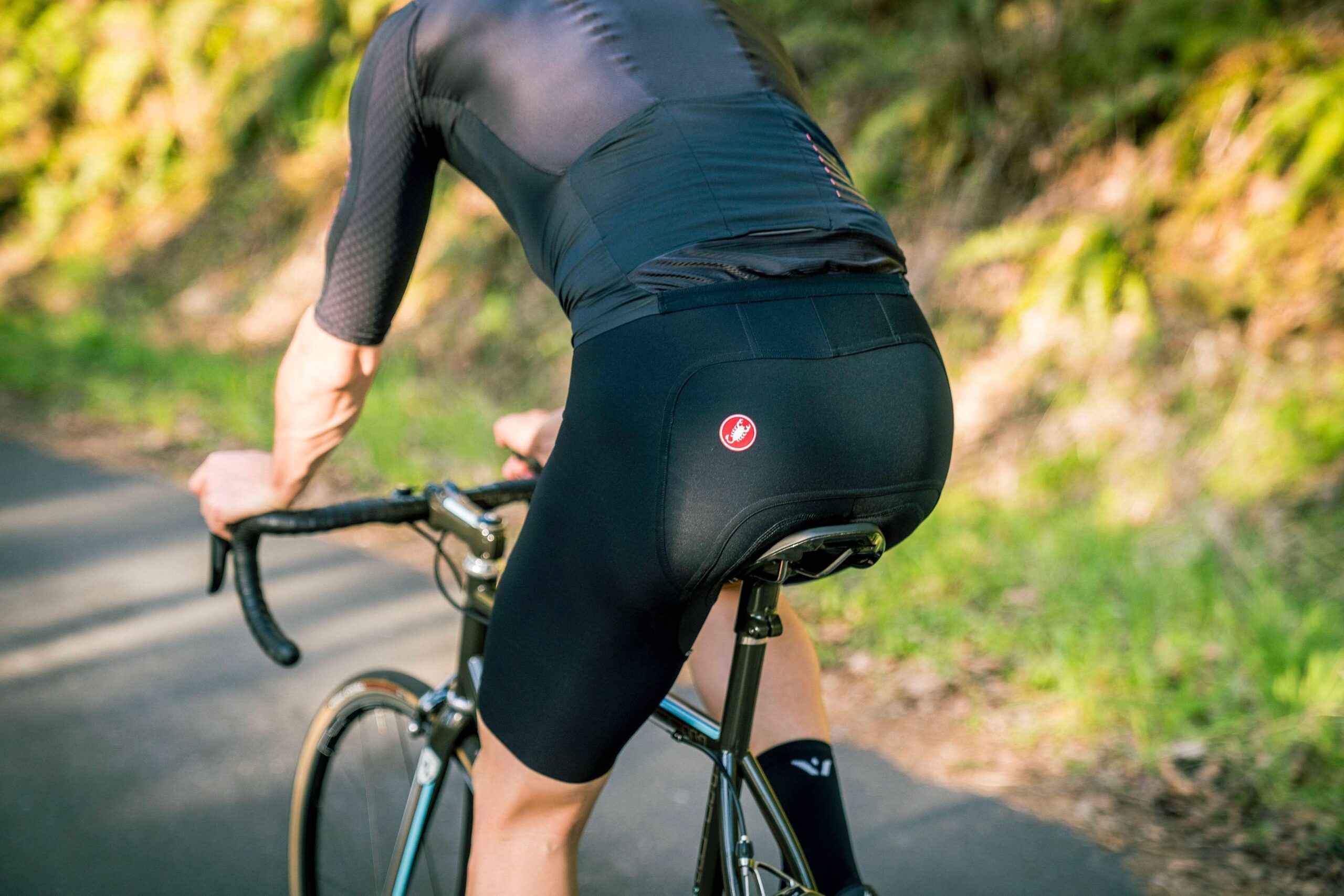
Value
If you take a look at the differences in price among the models we tested, you can see that they vary quite dramatically between the least and most expensive options. While some of the most expensive options, like the Velocio LUXE, proved to be our favorite, mid-priced models like the 7Mesh MK3 and Castelli Free Aero RC perform pretty much just as well and will save you a few bucks. Even the least expensive models we tested, the Pearl Izumi Attack and The Black Bibs Ultimate are really solid options that cost roughly a third of the price of the high-end models. So, while you can spend a bit more for fancier materials, pads, and more refined designs and construction, the wallet-friendly options are certainly worthy of consideration if you’re operating on a tighter budget.
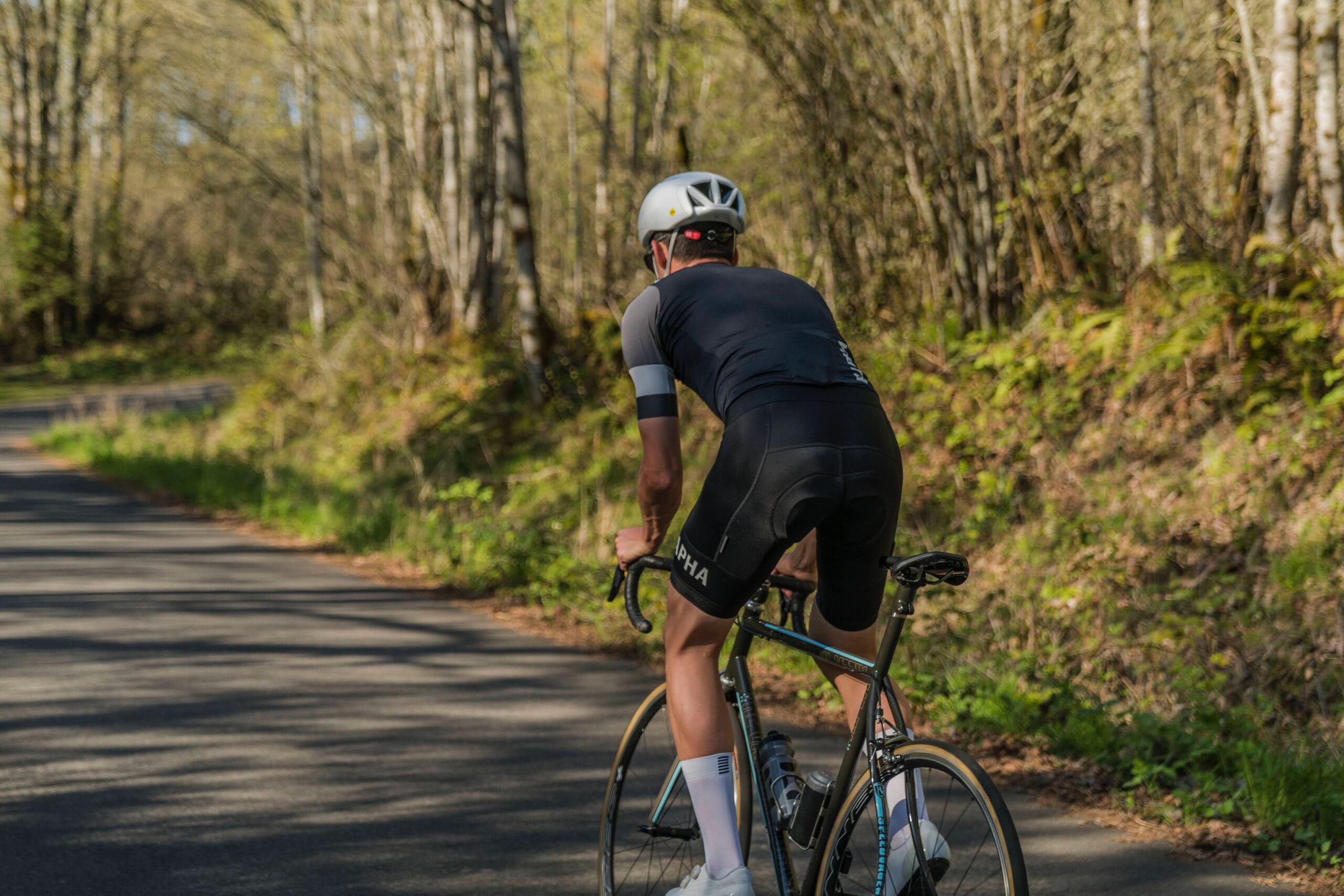
Frequently Asked Questions
In our opinion, yes! Sure, you can ride without padded shorts, but… Padded shorts exist for a reason, and that is to enhance your seated comfort, and ultimately your enjoyment on the bike. While thin, seat pads, or chamois, provide a layer of cushioning between your sit bones and perineum and your bike’s saddle. These pads are roughly the shape of a bike saddle with padding strategically placed to provide cushioning and support. These pads also serve to absorb and wick away sweat and moisture which helps improve comfort and potentially reduces the likelihood of sores, irritation, and infection.
While padded shorts without shoulder straps do work okay for cycling, we always prefer to ride in bib shorts for several reasons. Traditional shorts without straps typically have an elastic waistband to keep them snug around the waist and prevent them from slipping down. While somewhat effective, the tension on the waist can press on the abdomen, especially when in the forward riding position, which can be quite uncomfortable. Additionally, regular shorts usually start to slip down or sag after a while which can reveal some of the lower back and/or allow the pad to move out of its optimal position.
Overall, we feel that bib shorts are far more comfortable. The straps that hold the shorts up negate the need for a tight waistband and help to keep the shorts in the right position without any unwanted pressure on the lower abdomen. When articulated forward in the riding position, the straps keep the shorts from sagging while holding the seat pad in the correct position regardless of how you move around on the bike.
Padded cycling shorts are intended to be worn without underwear. There are several reasons, but the first is that the pad itself is designed to be worn directly next to the skin. When fit properly, padded shorts are snug against the body and hold the pad in the correct position. Putting a layer of underwear in between can compromise the pad’s positioning, and the extra material will likely bunch up and cause discomfort, chafing, or irritation over time. The pads are also intended to absorb and wick sweat, and your underwear will likely disrupt this process and hold moisture which can cause additional problems.
Like anything in cycling, bib shorts can be very expensive. While you certainly can spend upwards of $300 on a high-end model, there are plenty of options at lower price points that get the job done. The primary differences are in the materials used in the body of the shorts, straps, and seat pad, as well as the design and construction. Most of the time, the high-end models use higher-quality fabrics, fancier pads, and construction methods that result in greater comfort or some marginal performance gains. Racers or those who spend long hours in the saddle multiple days a week will likely notice and benefit from more expensive bib shorts, while those who ride more casually, less frequently, or for shorter periods of time may be just as happy with less expensive options. Fortunately, even the least expensive models we tested are as good as the best shorts on the market from a decade or two ago, so it’s a good time to be a cyclist.
Spend what your budget allows. Plenty of people have lots of disposable income and won’t flinch at paying $300-$400 for the best bib shorts on the market. If you’re on a tighter budget, you don’t have to shell out the big bucks for shorts that will get the job done. One of our top-rated models, the 7Mesh MK3, retails for $200, which is $100 less than the most expensive model we tried. Less expensive options like the Pearl Izumi Attack and The Black Bibs Ultimate cost even less and work very well, especially considering the price. That said, if you’re riding a ton, it may be worth spending more on a high-end model.
This is generally a personal choice as it seems that some riders don’t need it, while others won’t go on a ride without it. If you experience chafing or saddle sores, it may be worth experimenting with certain creams that may help lubricate your seat pad and skin interface to help prevent it. If you do not have any issues with chafing or soreness, you can probably not worry about it.
